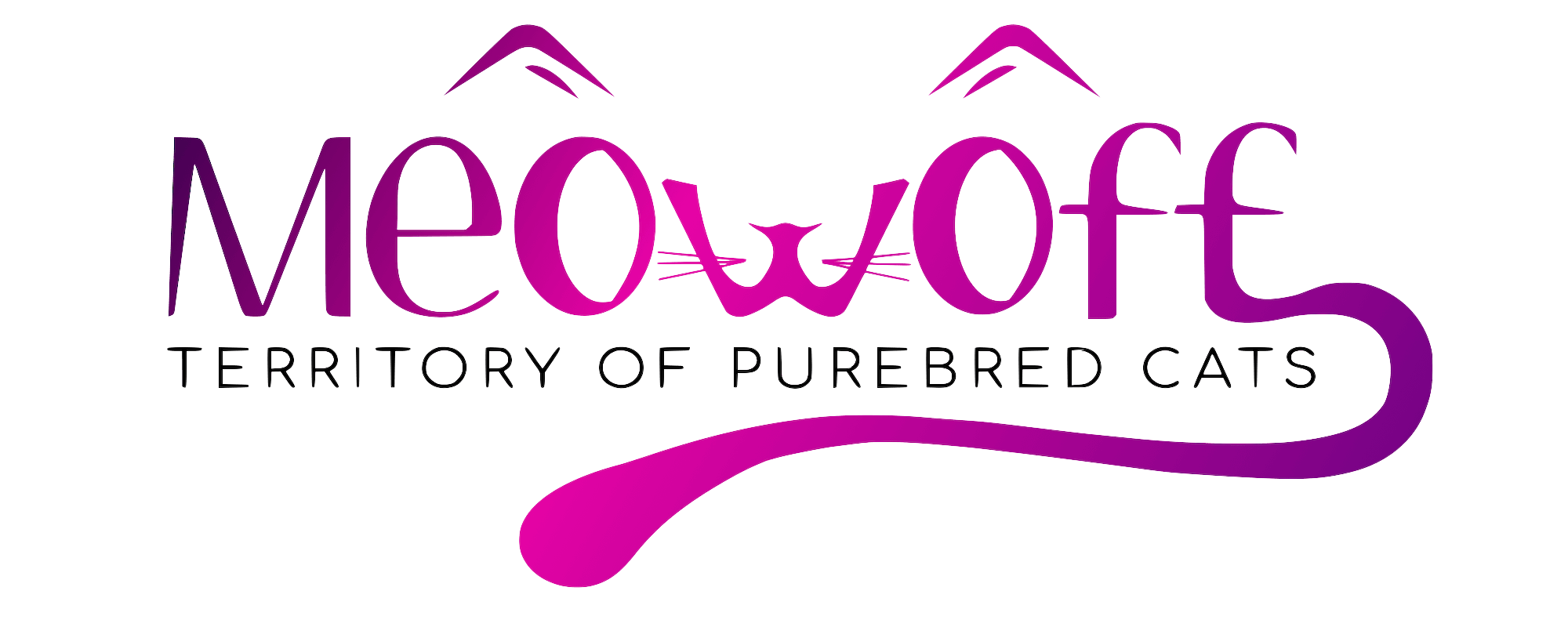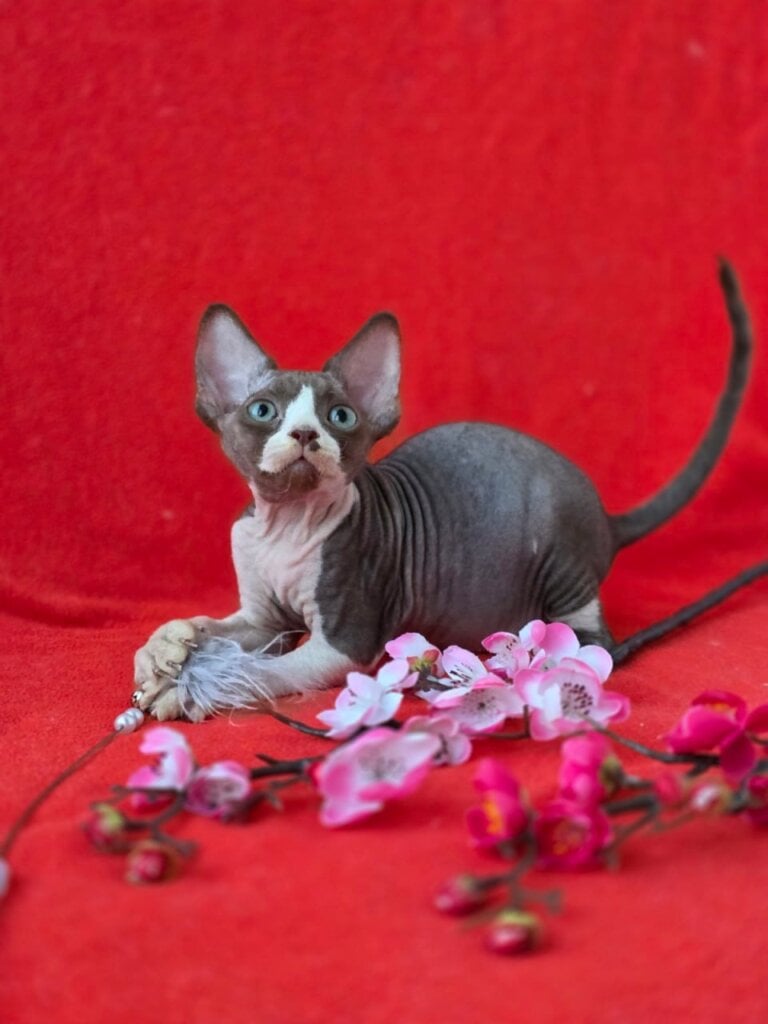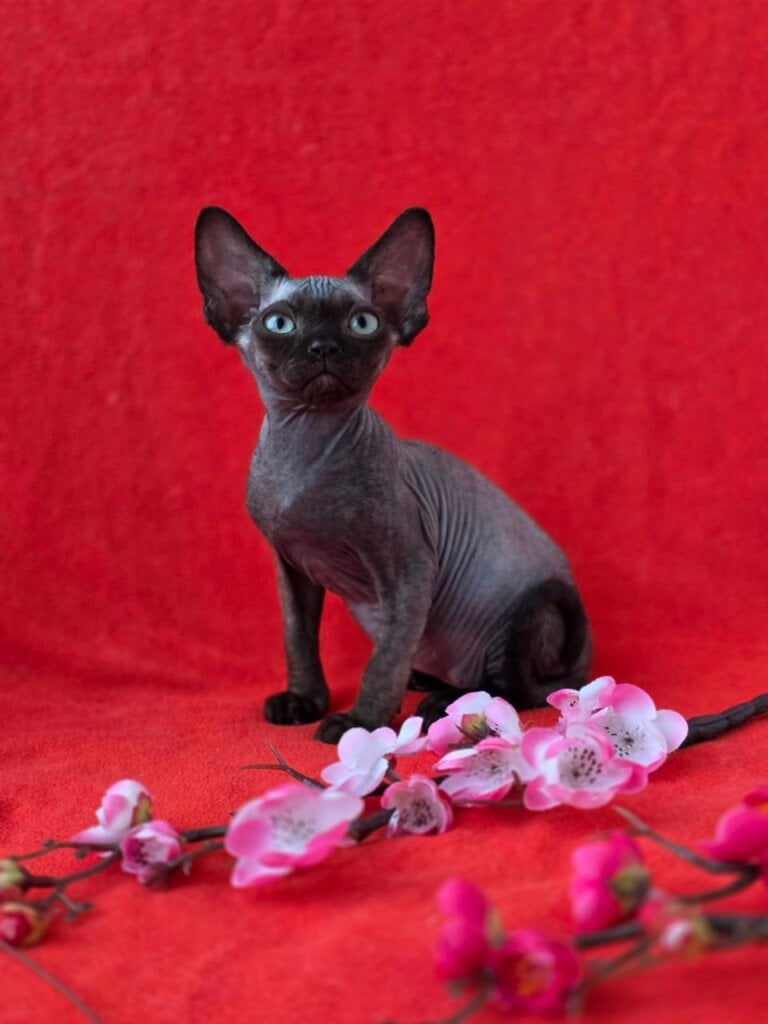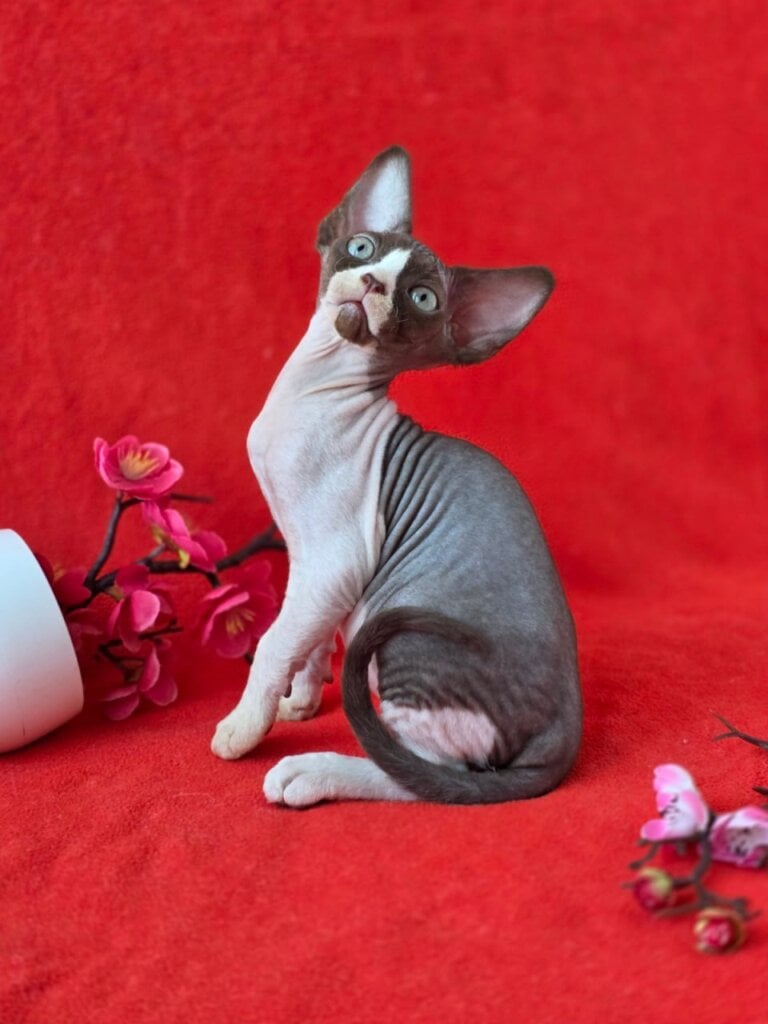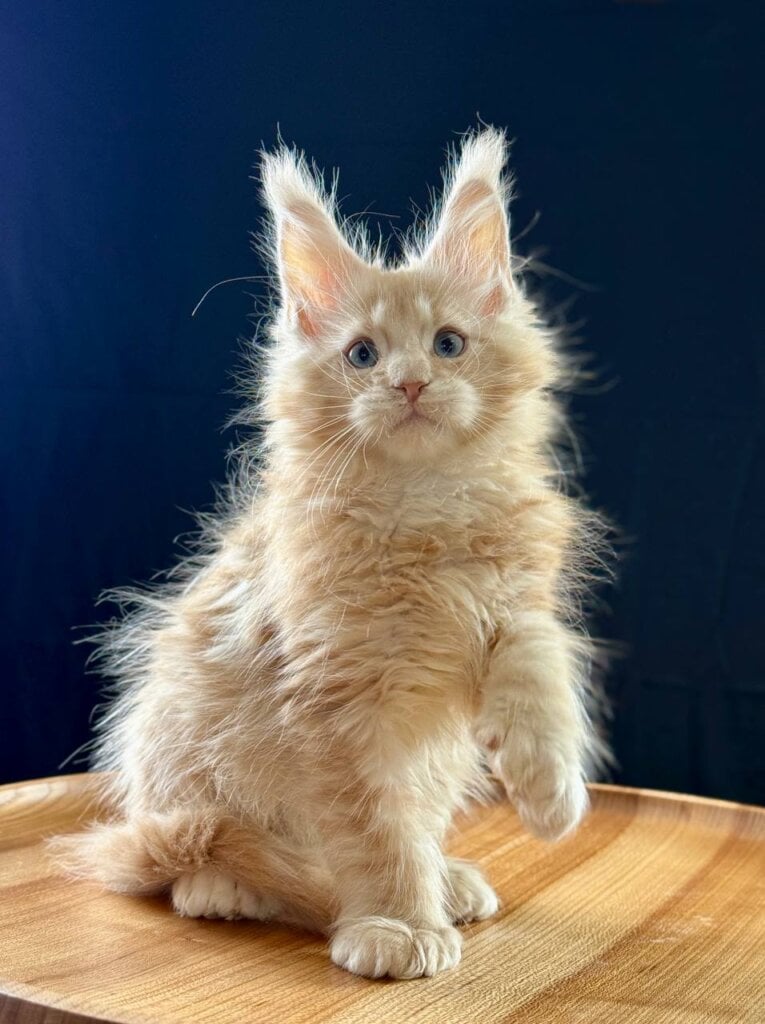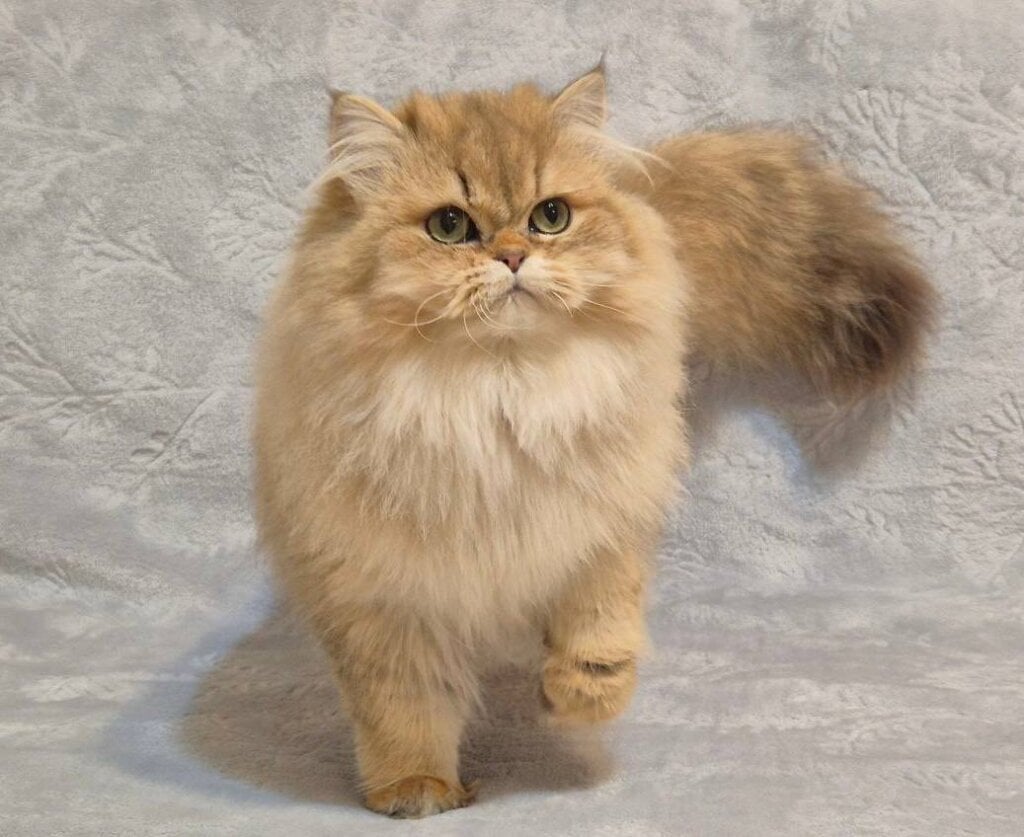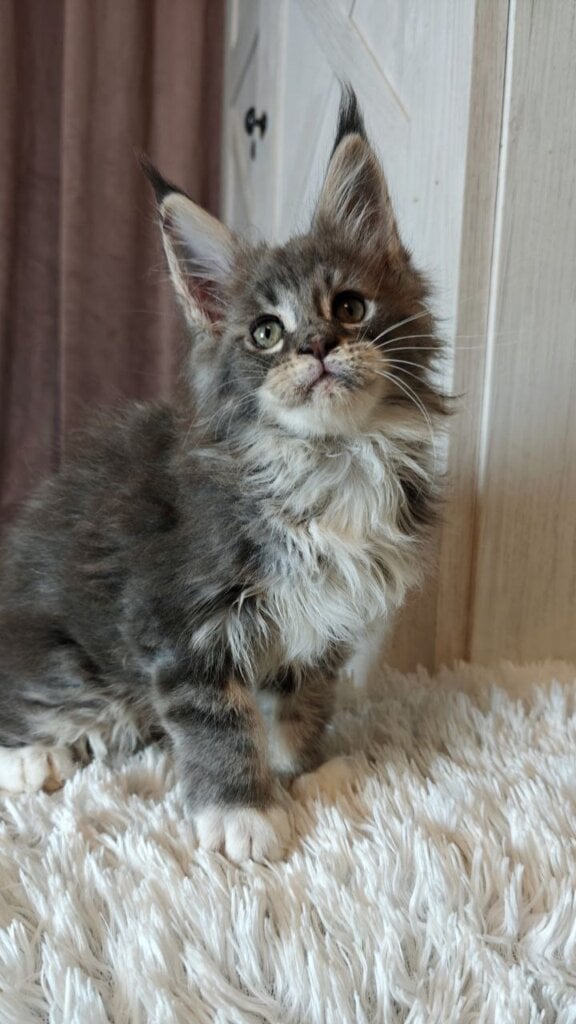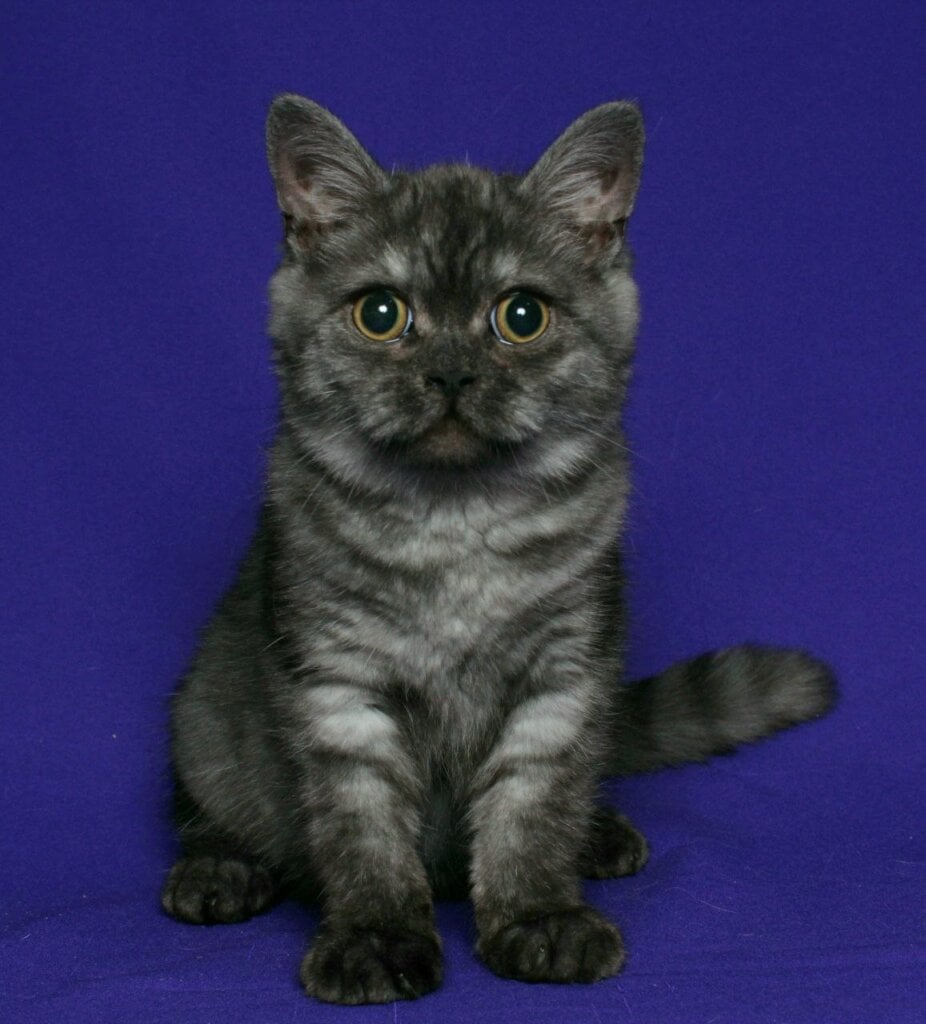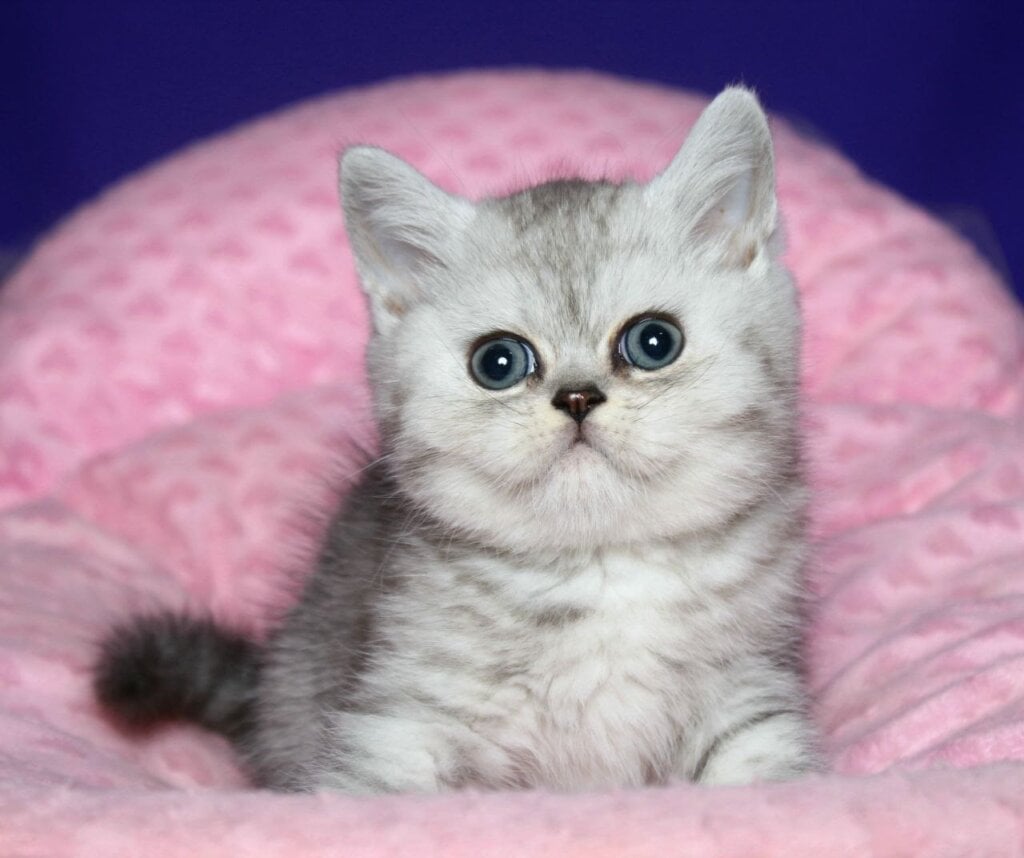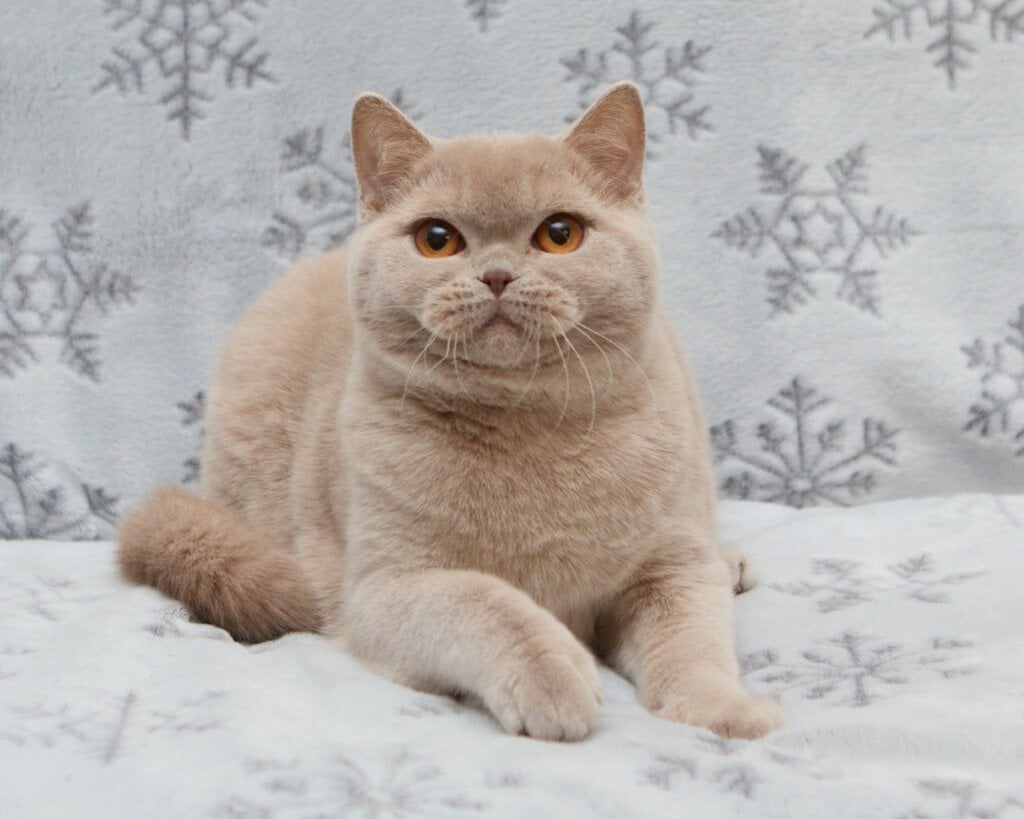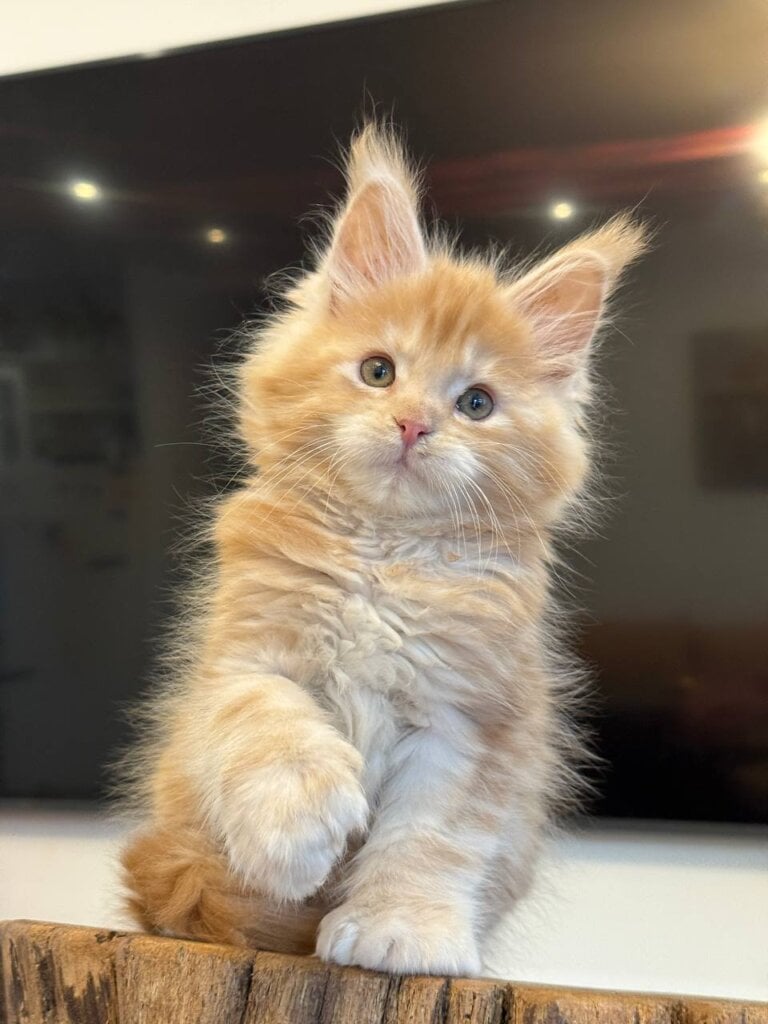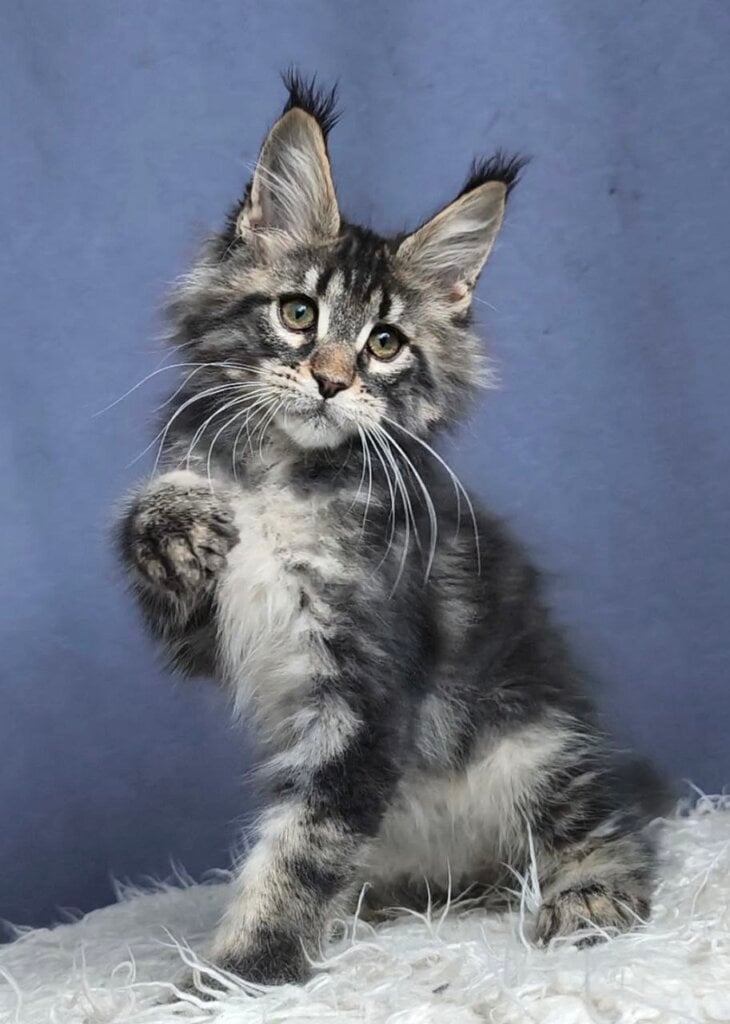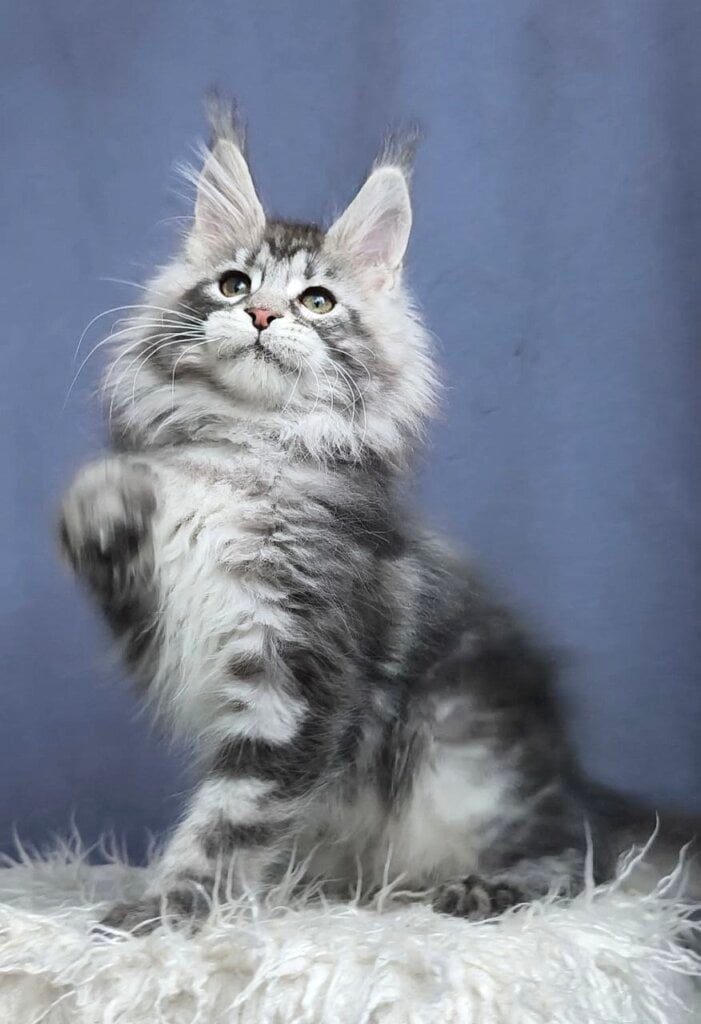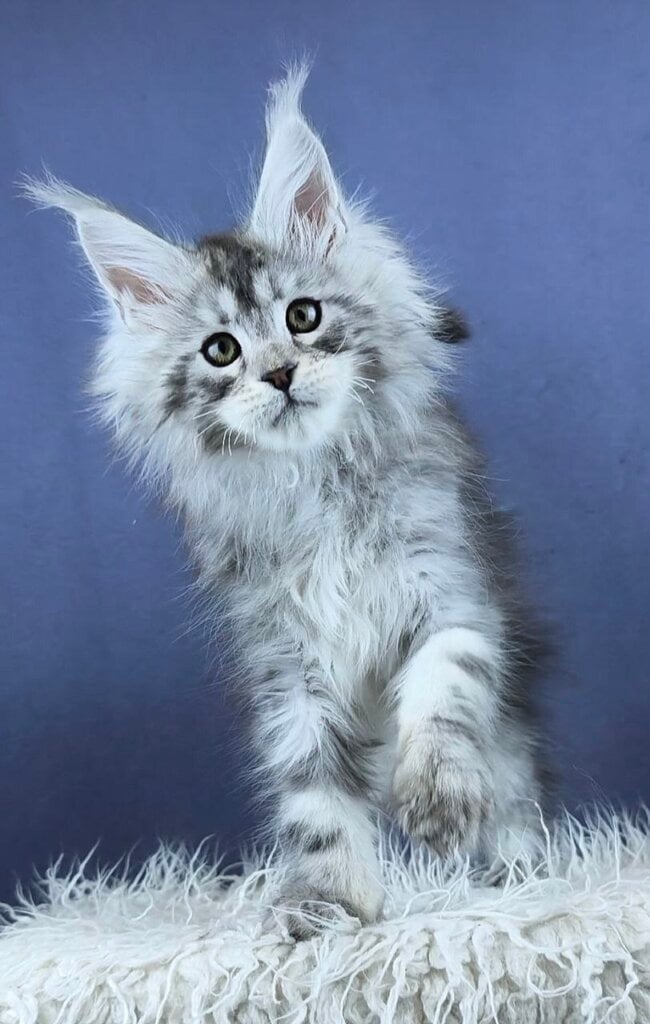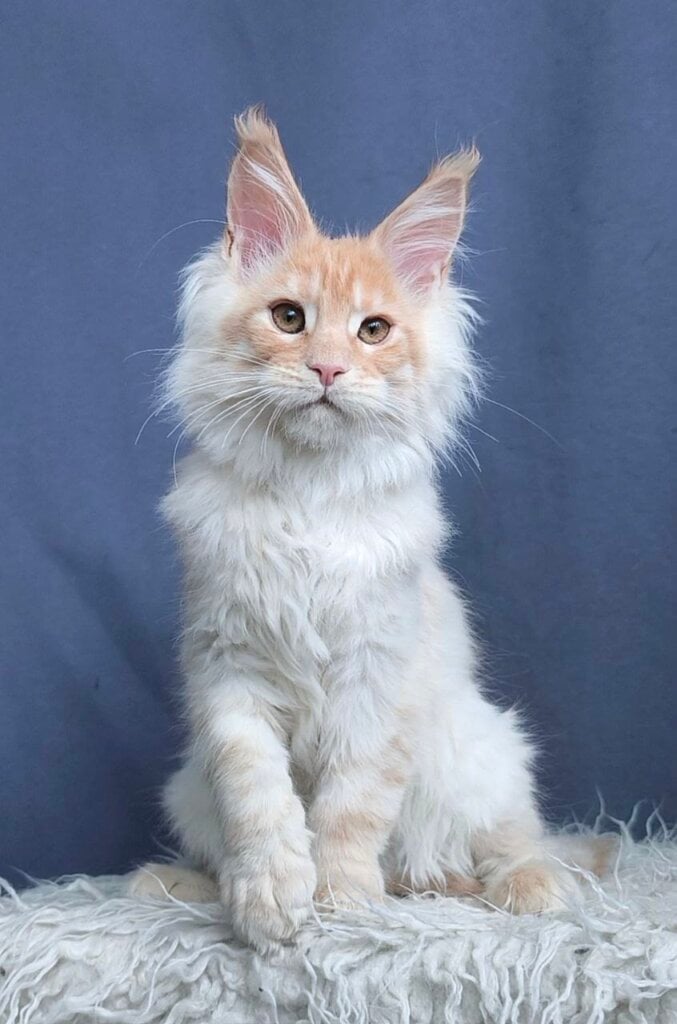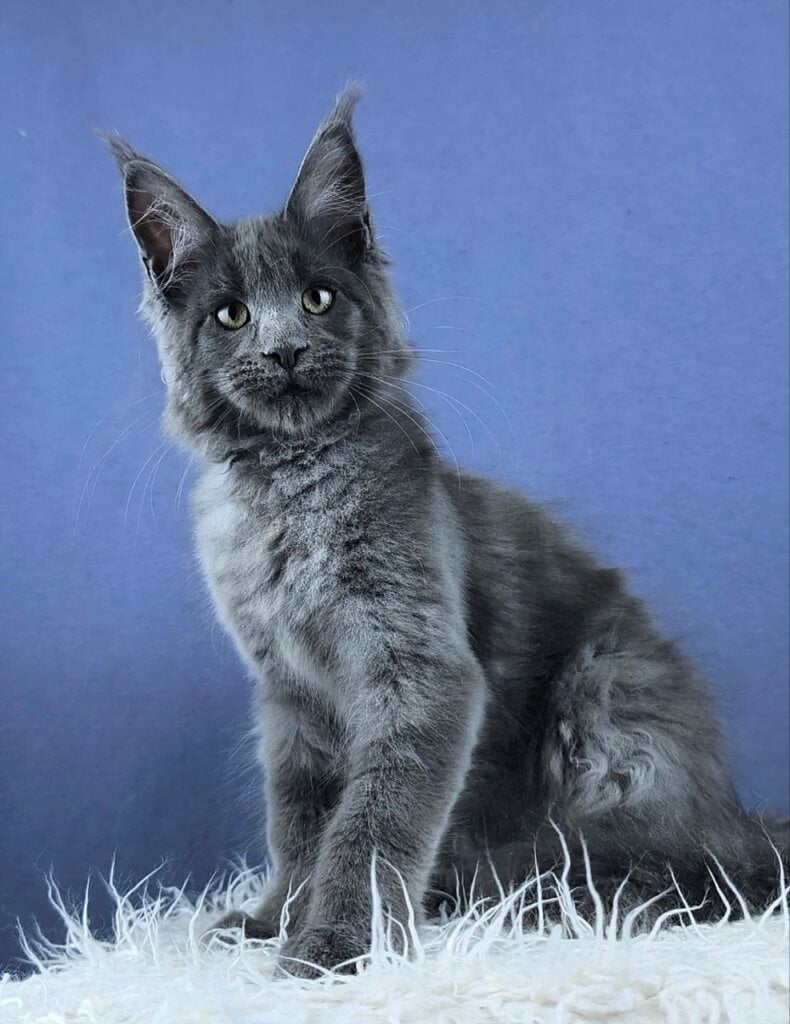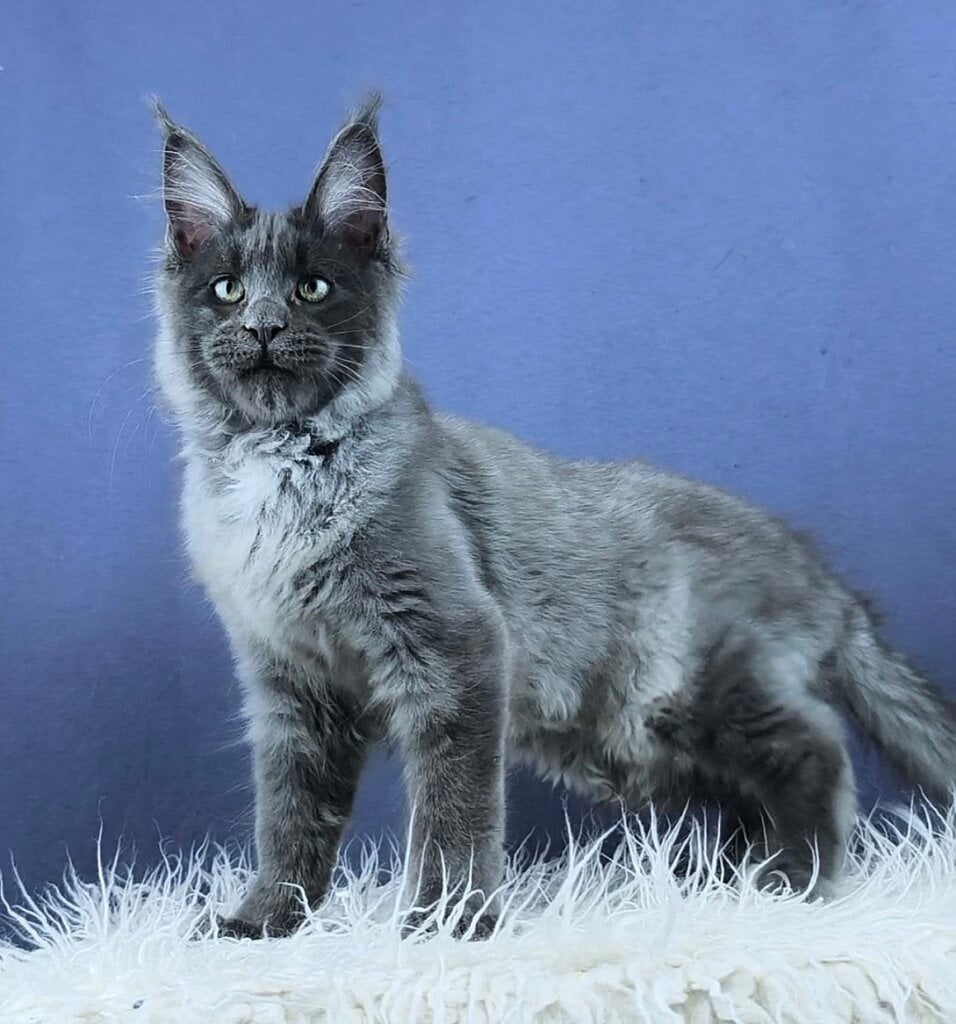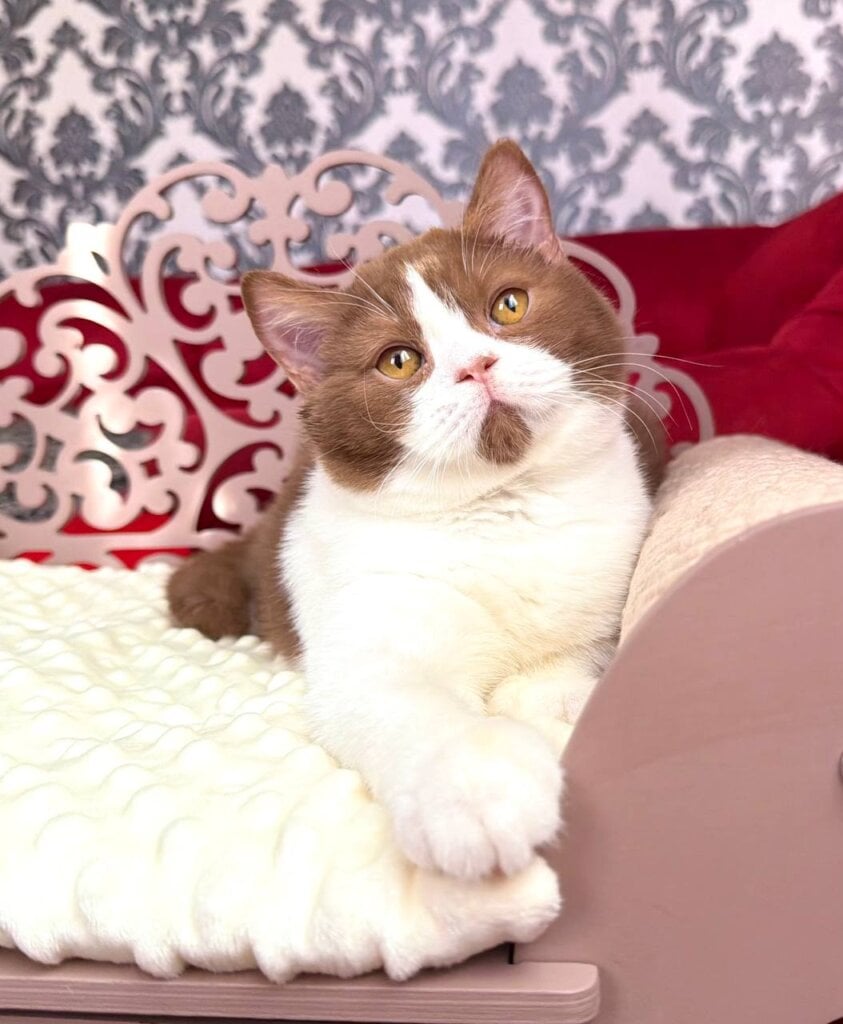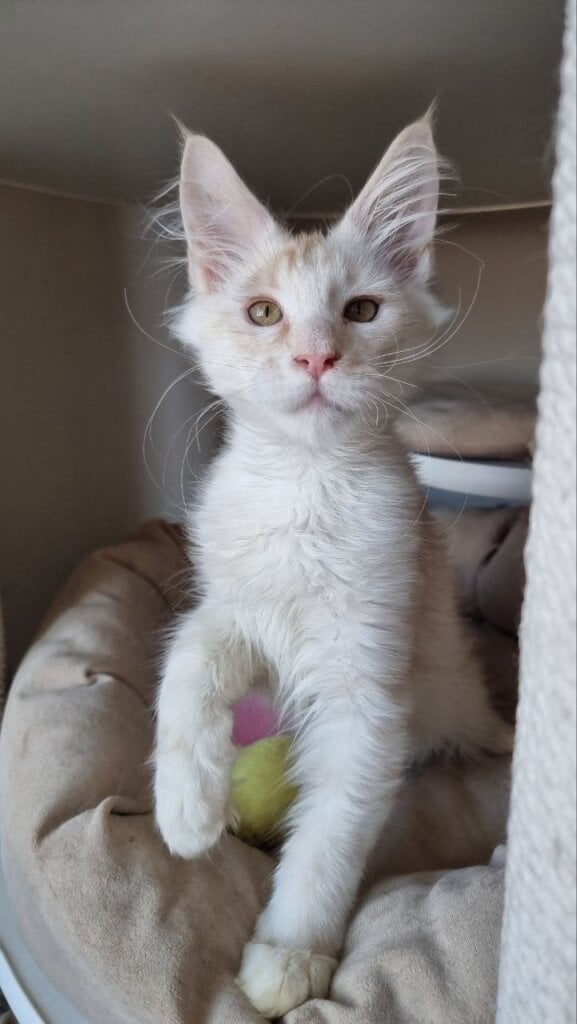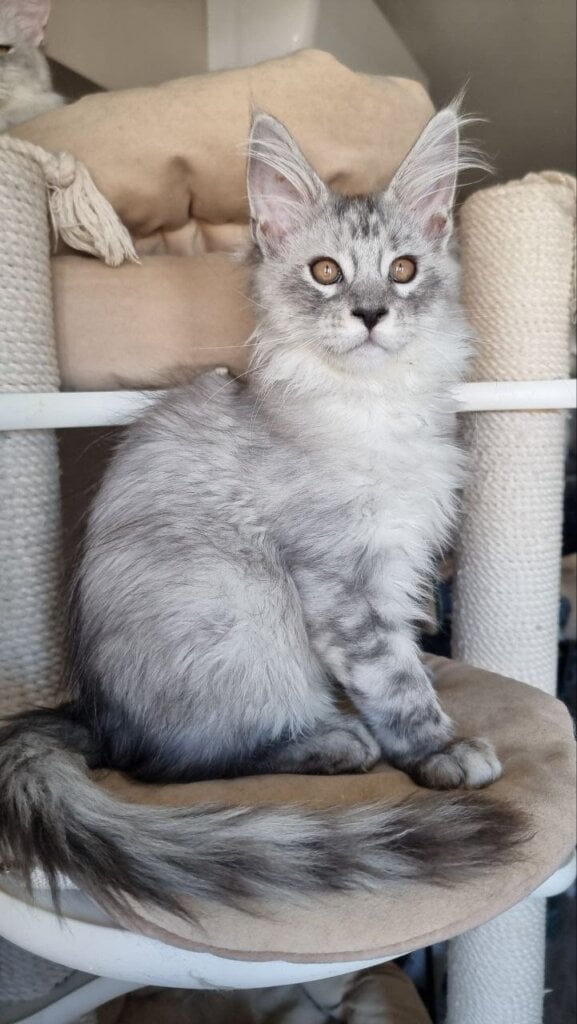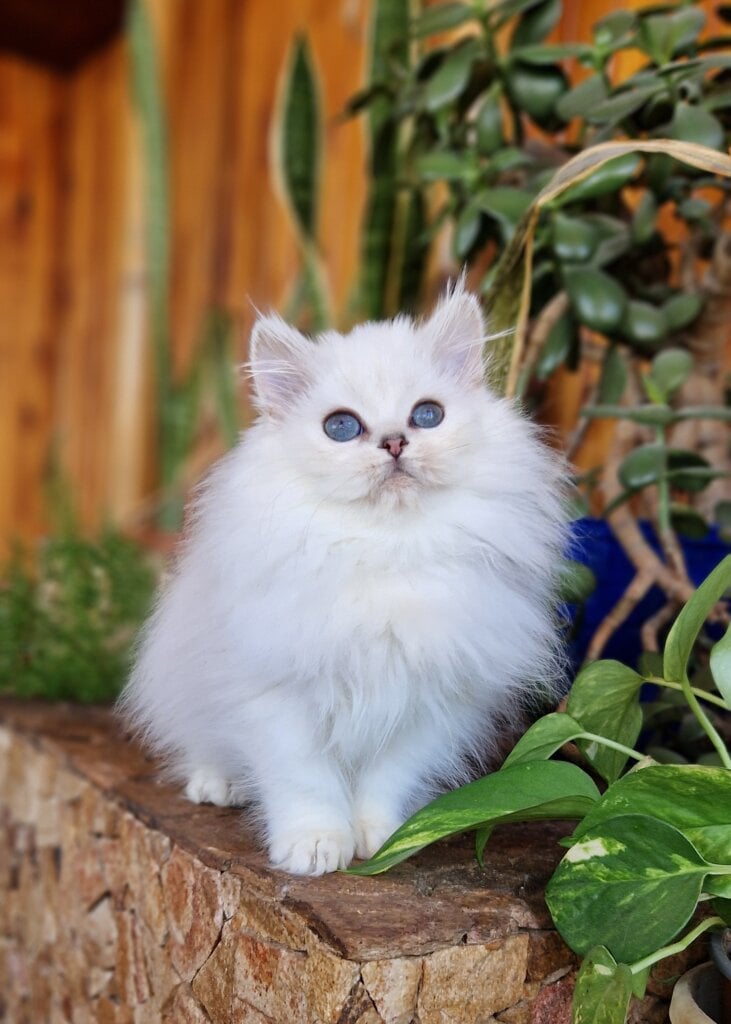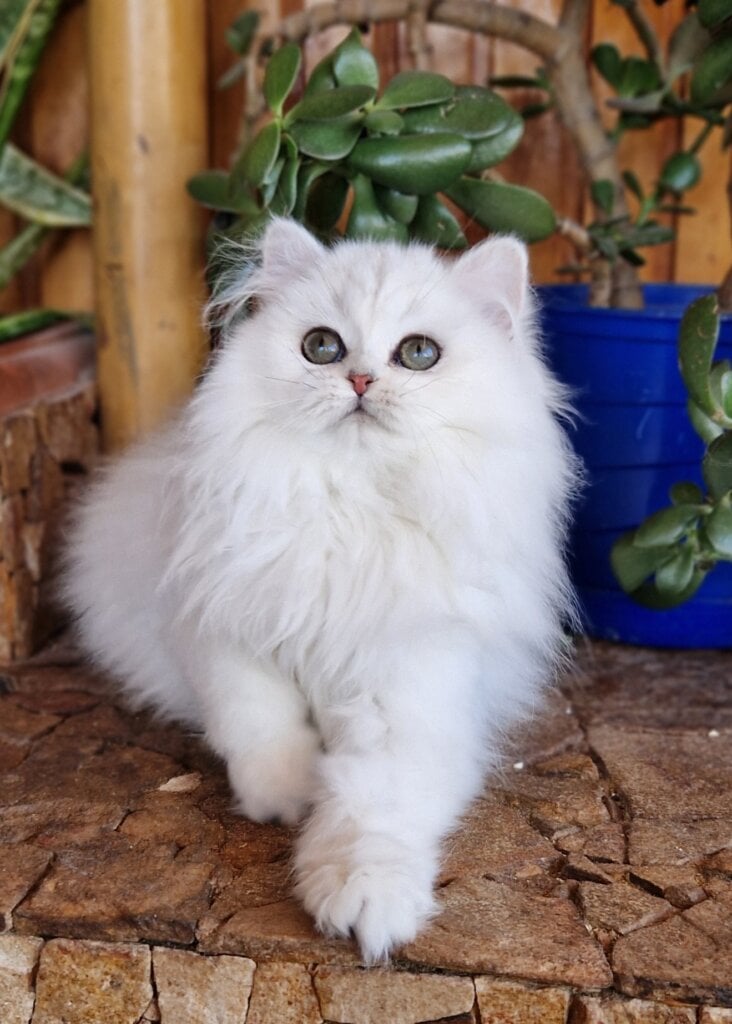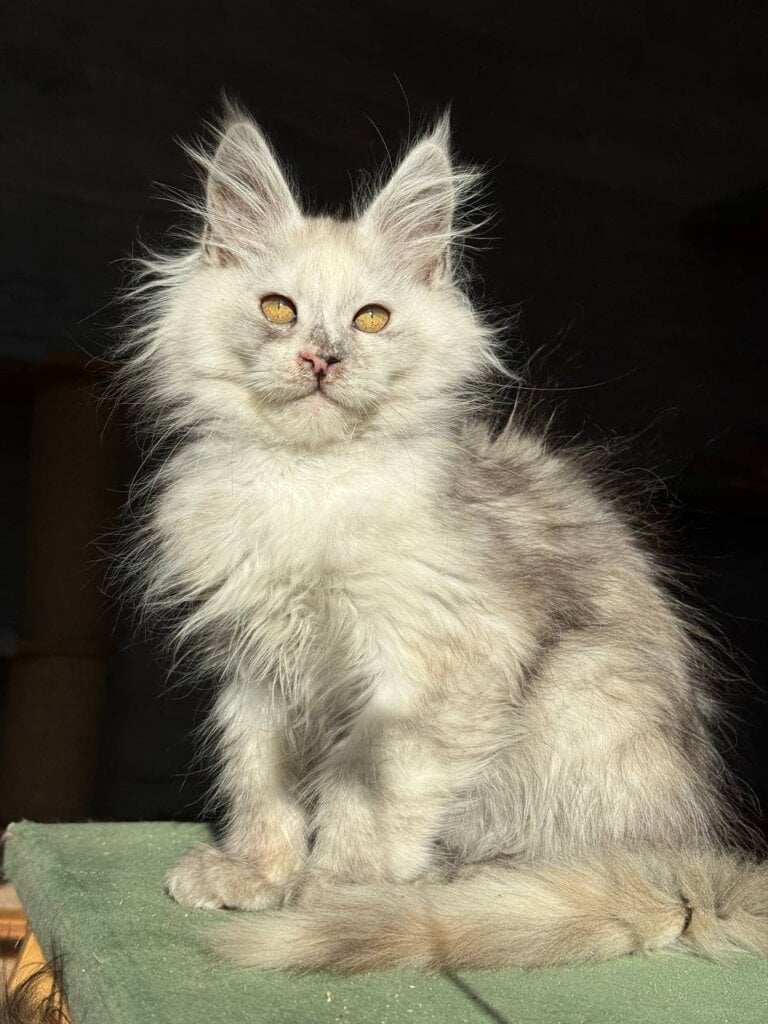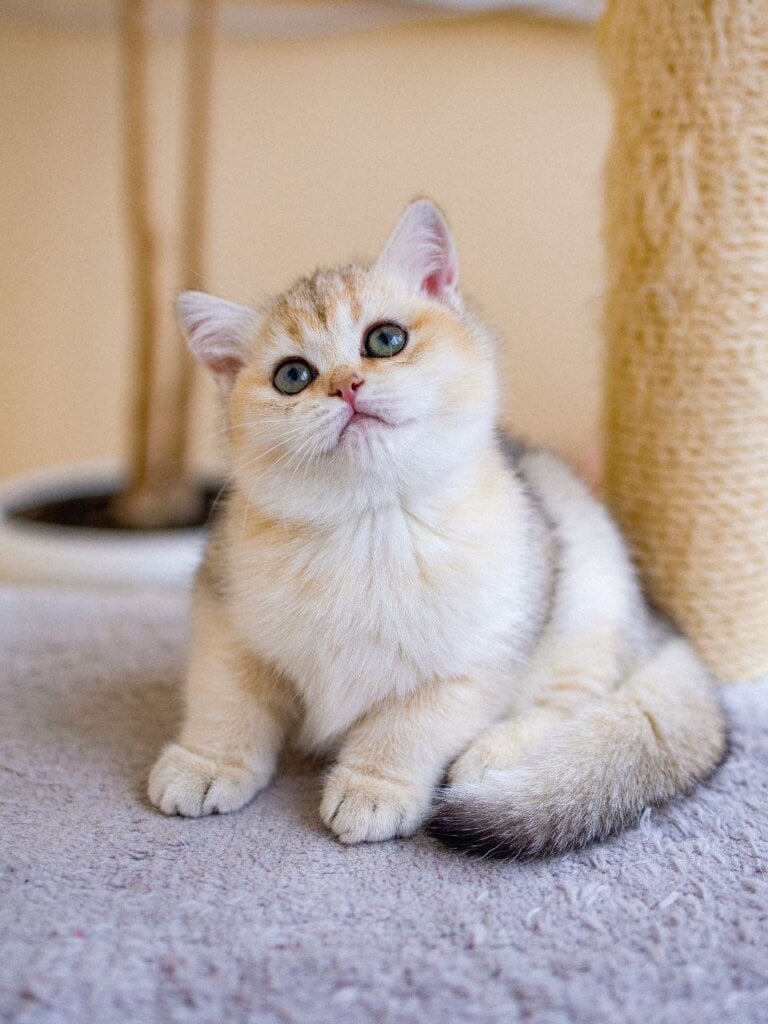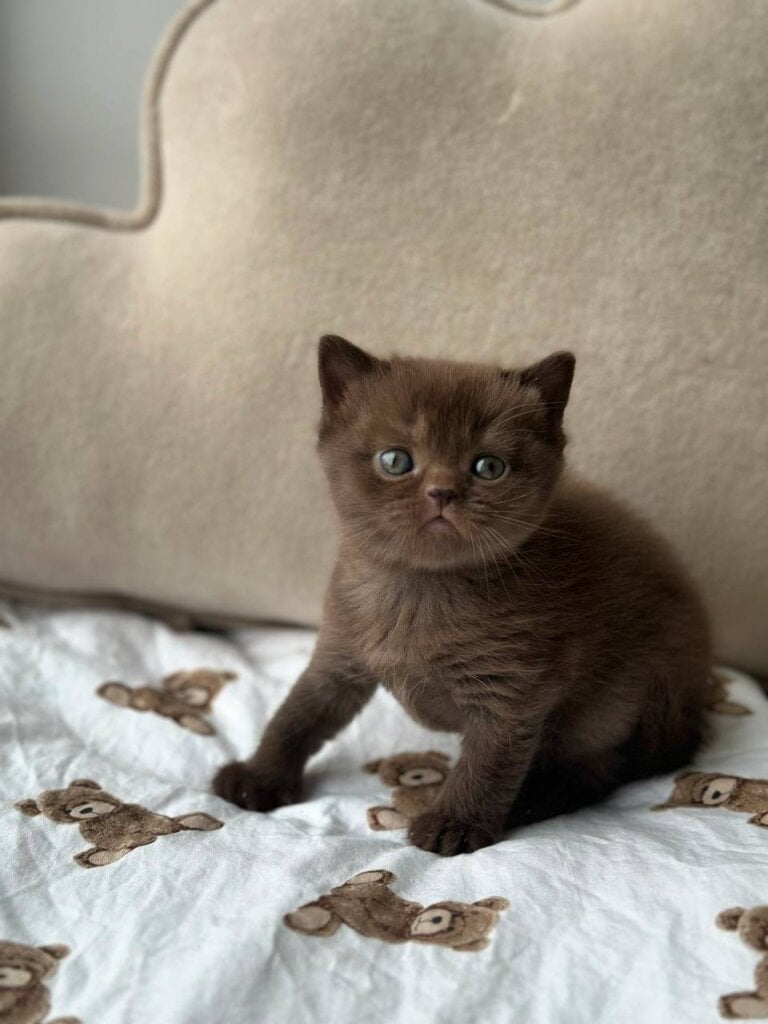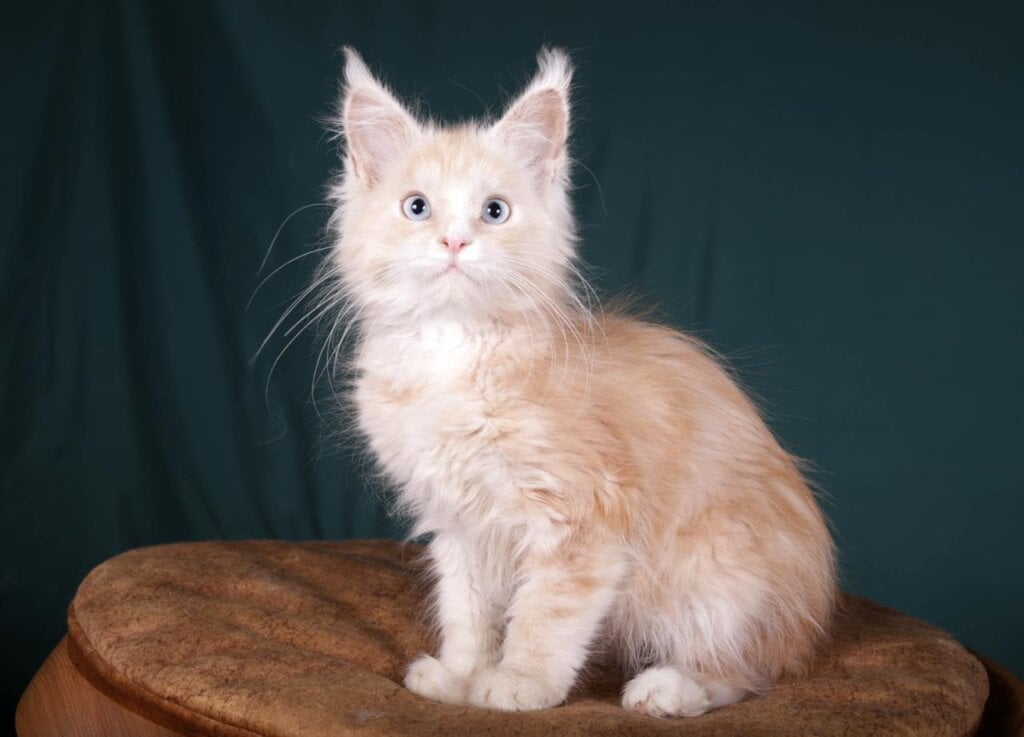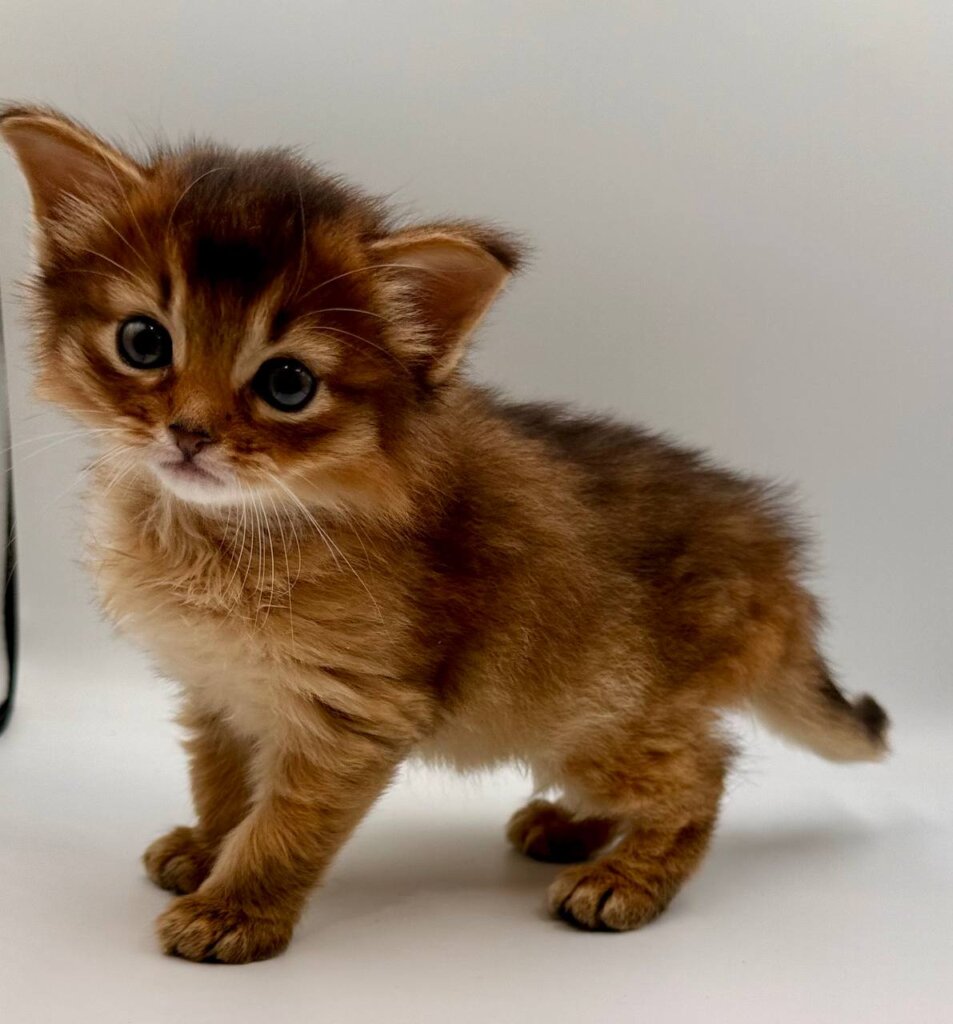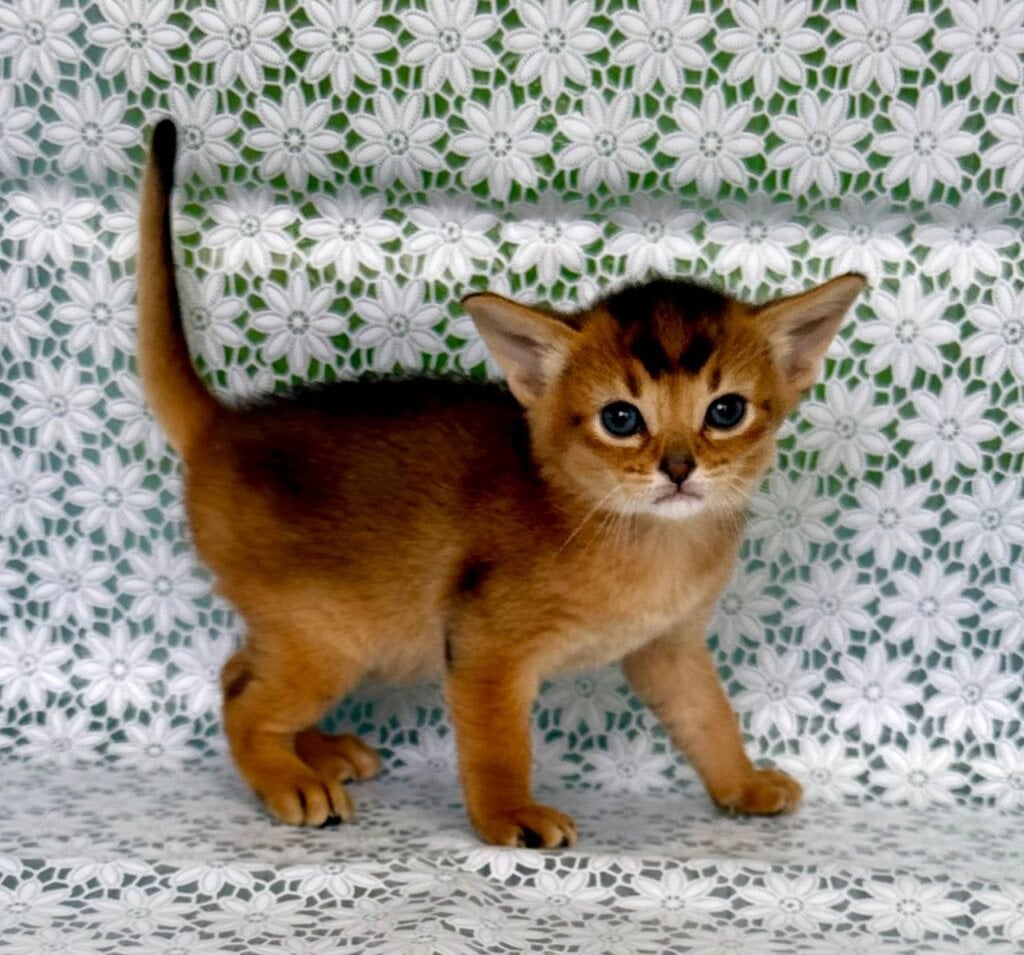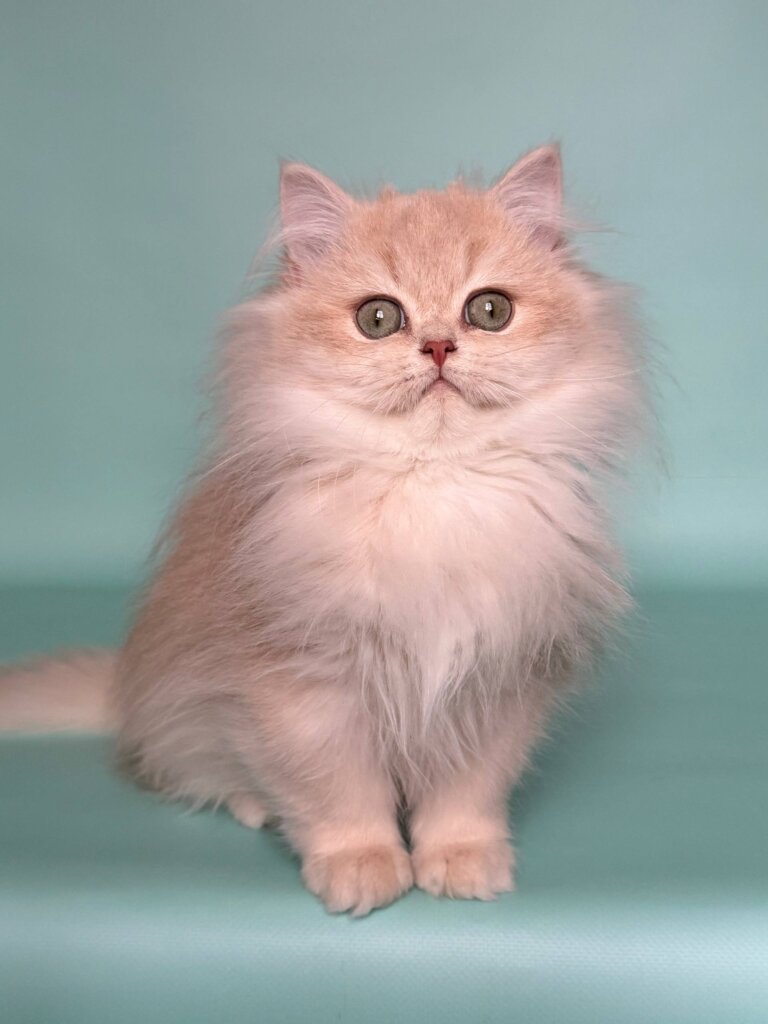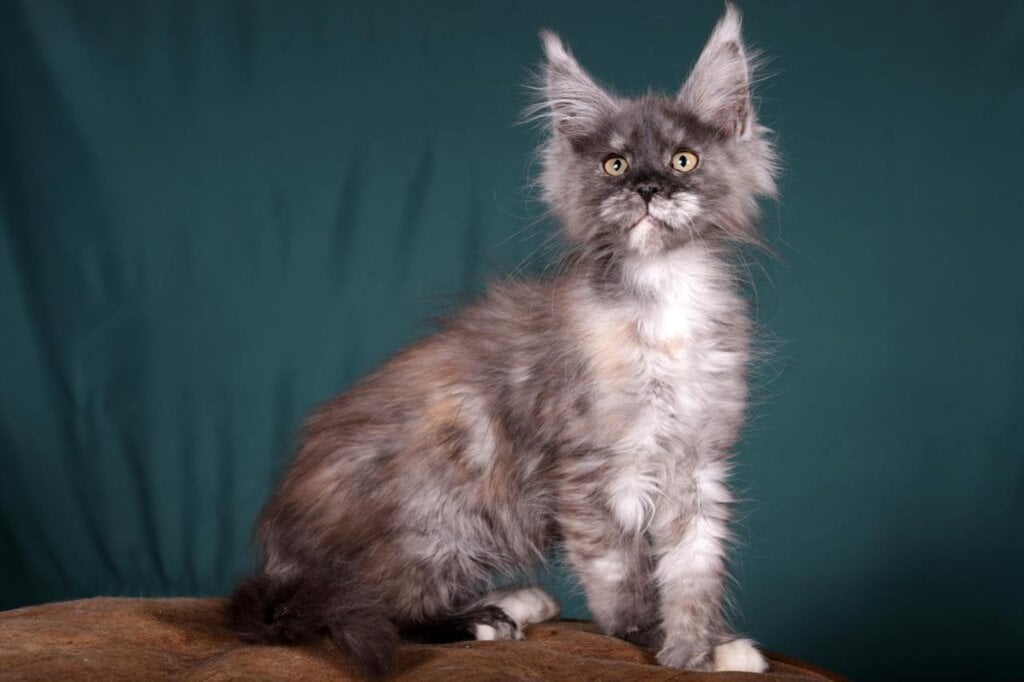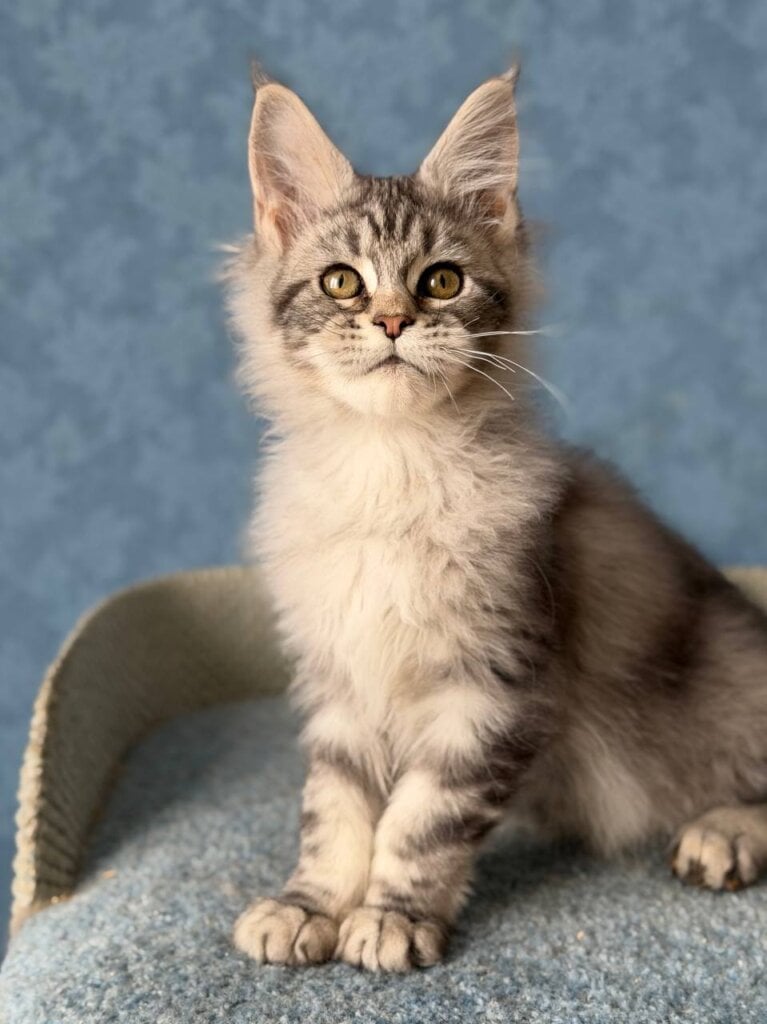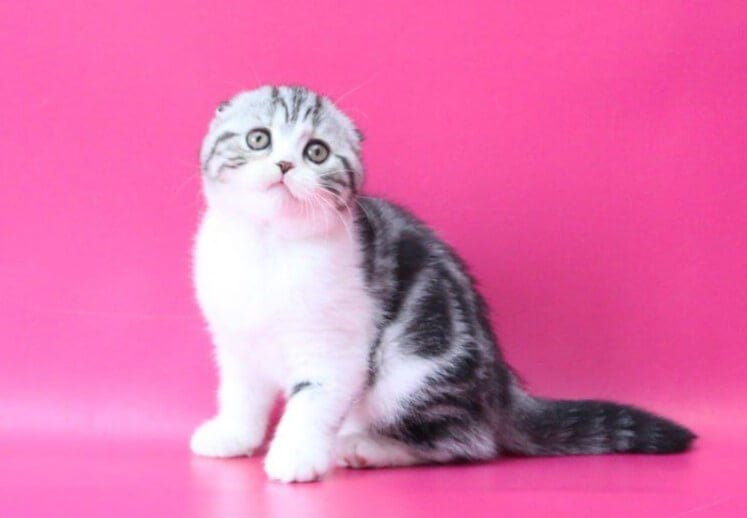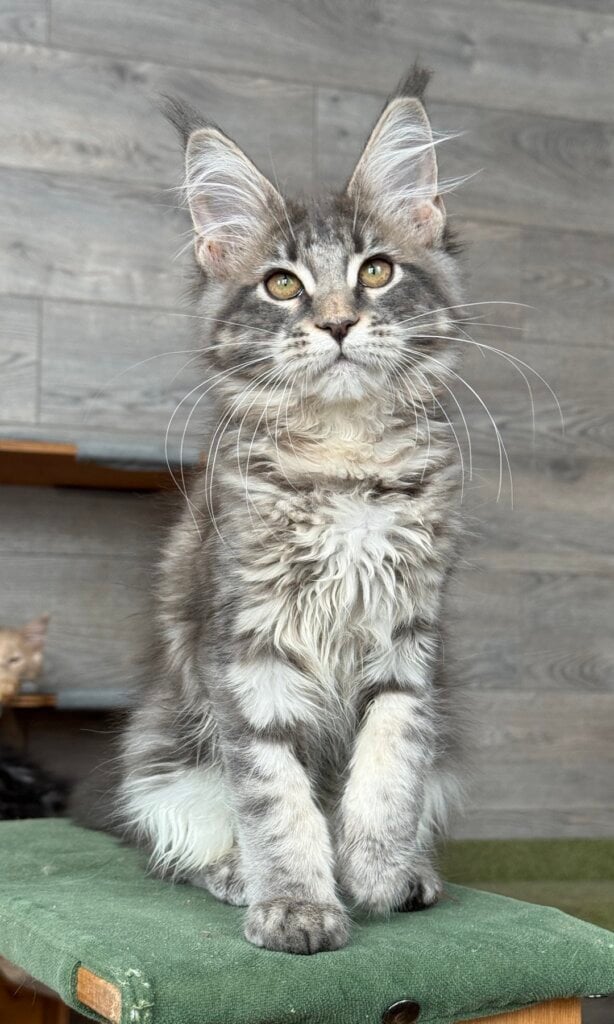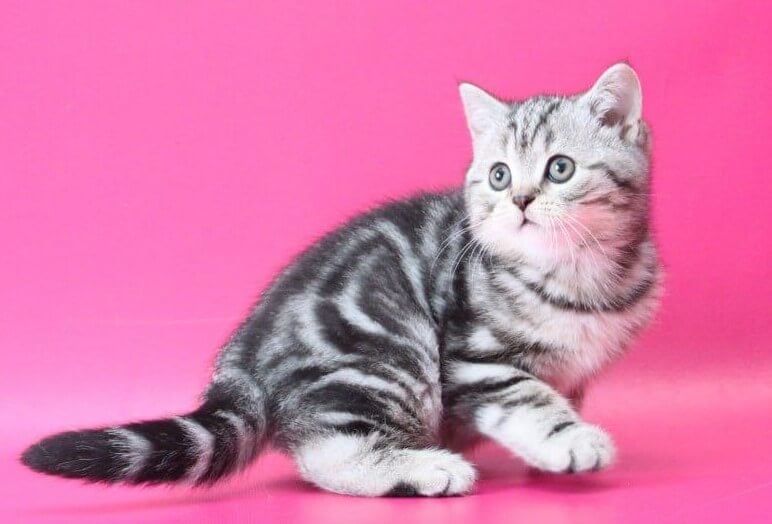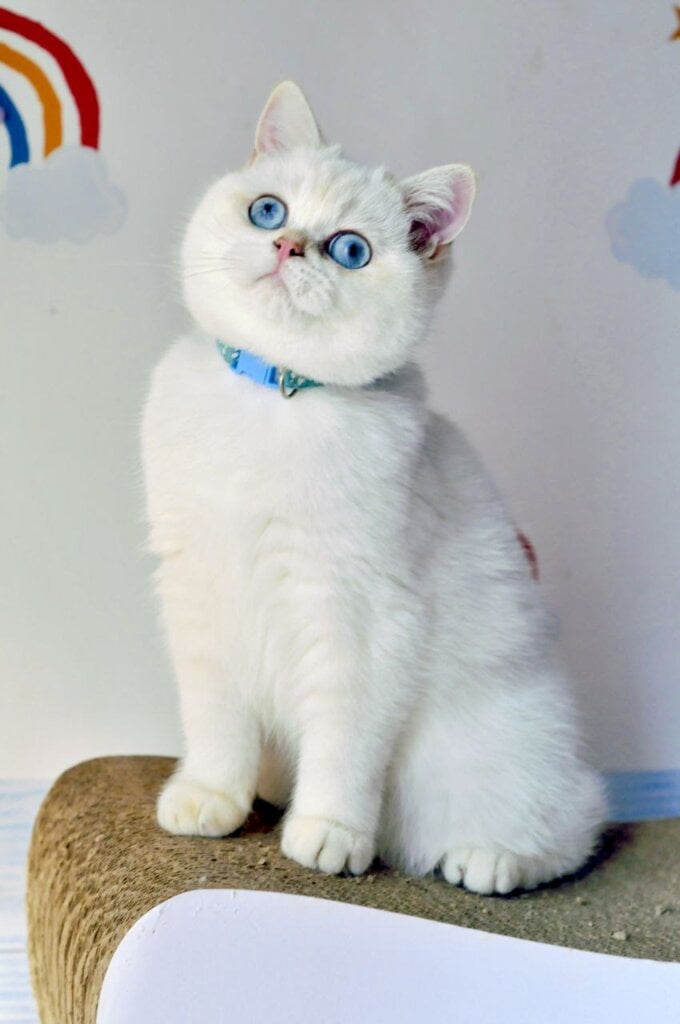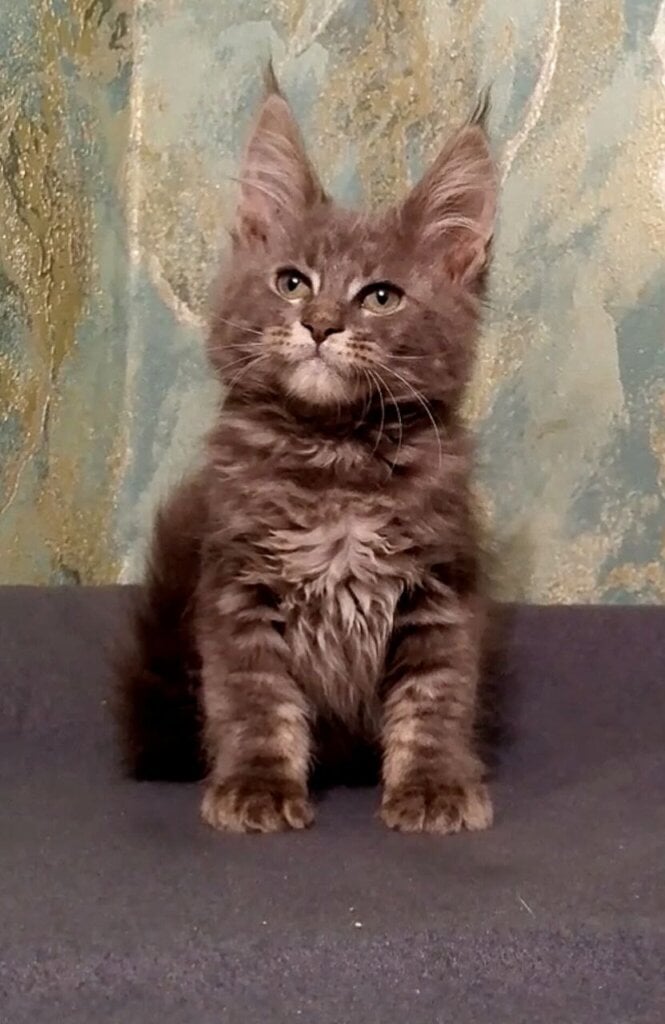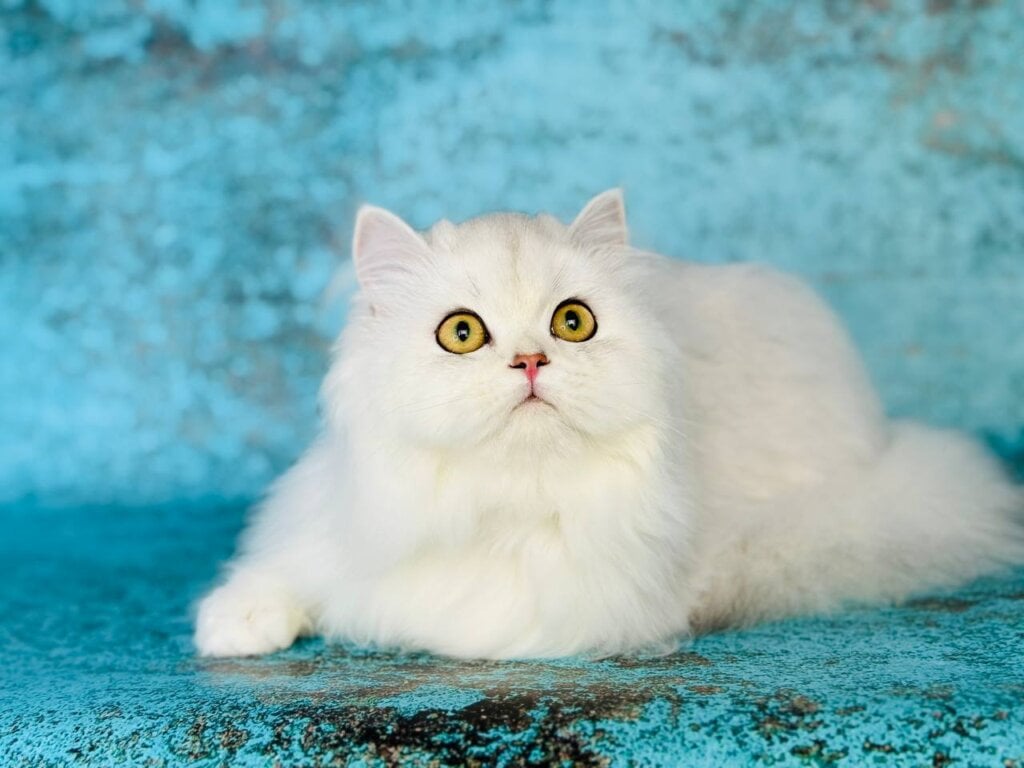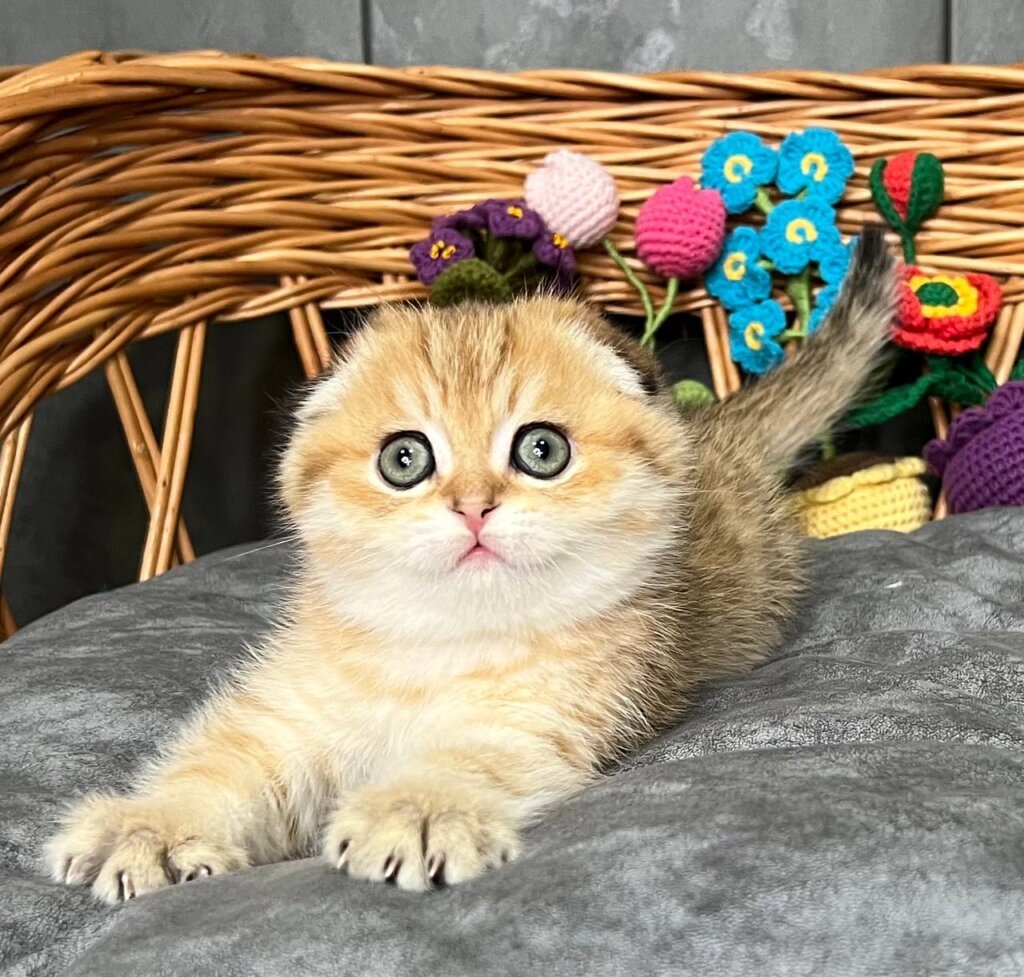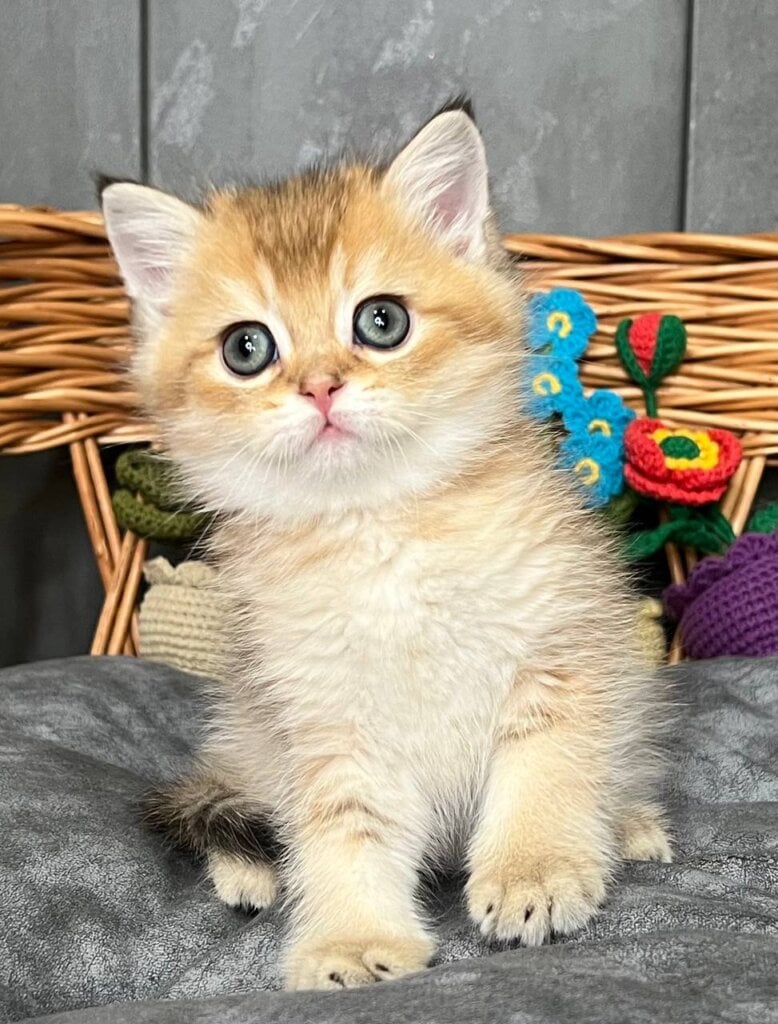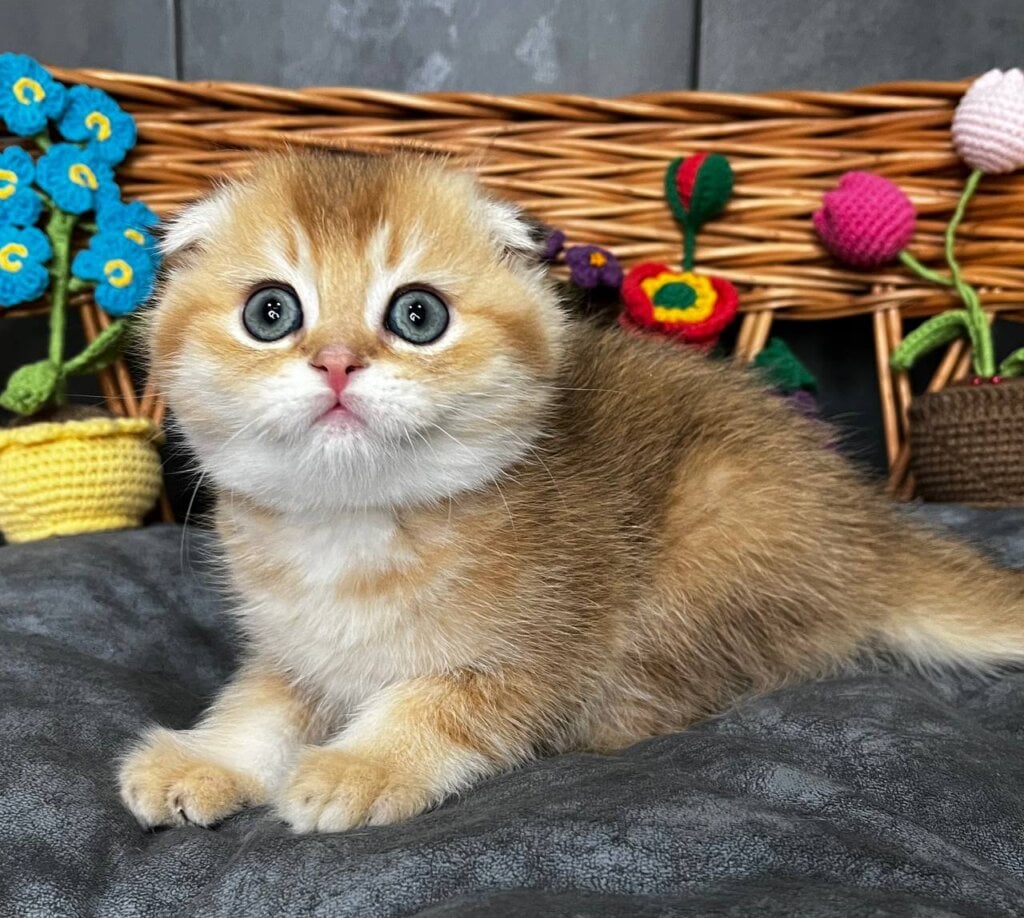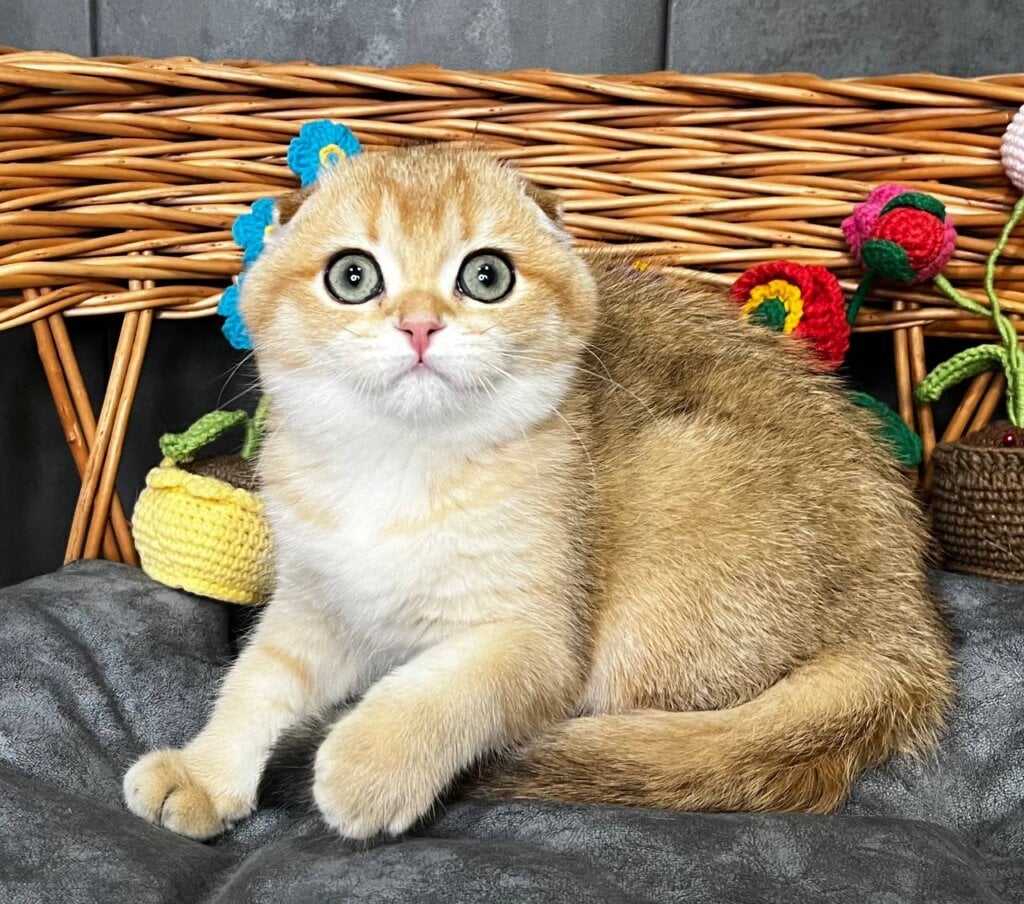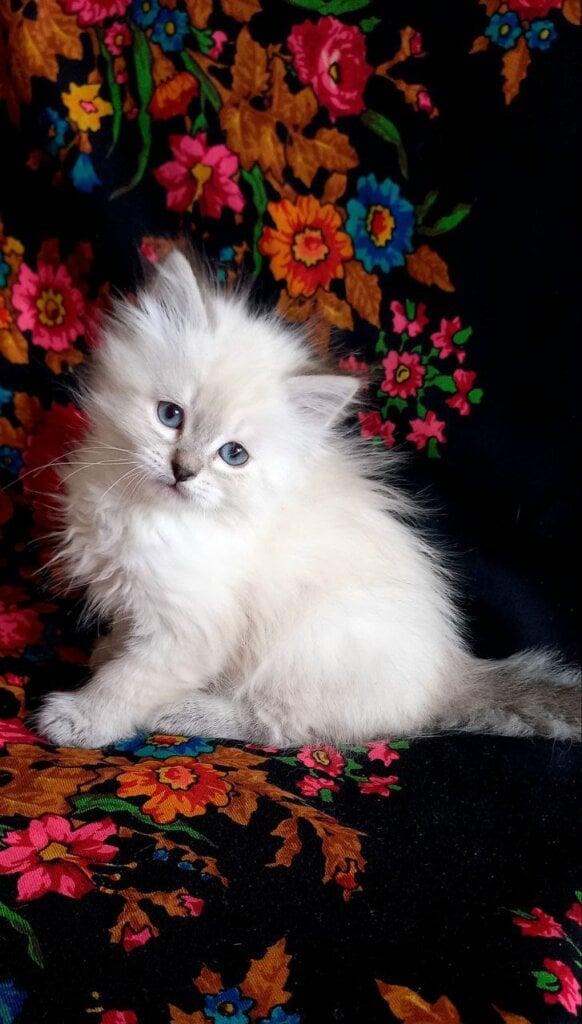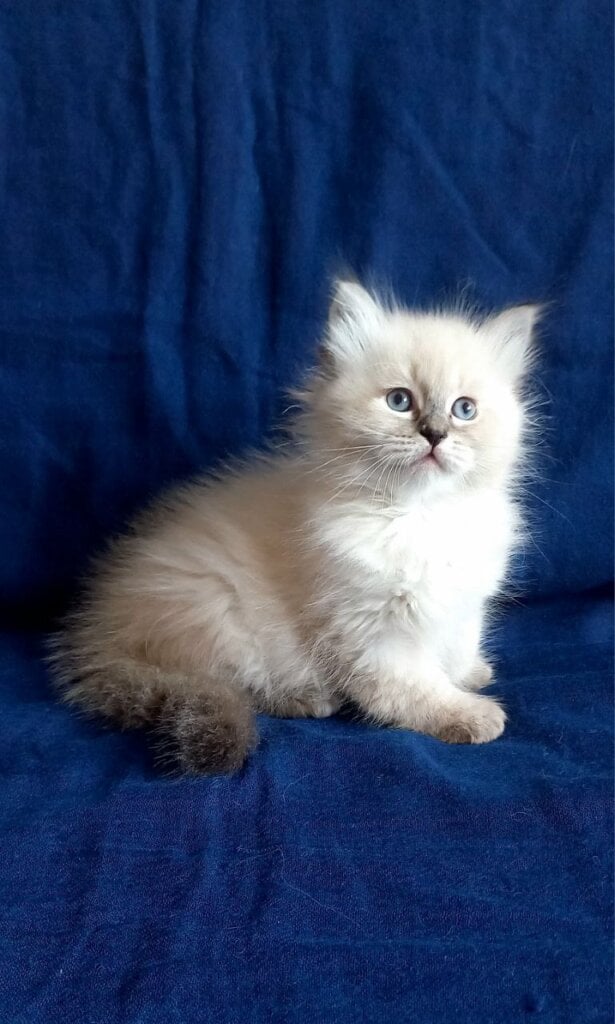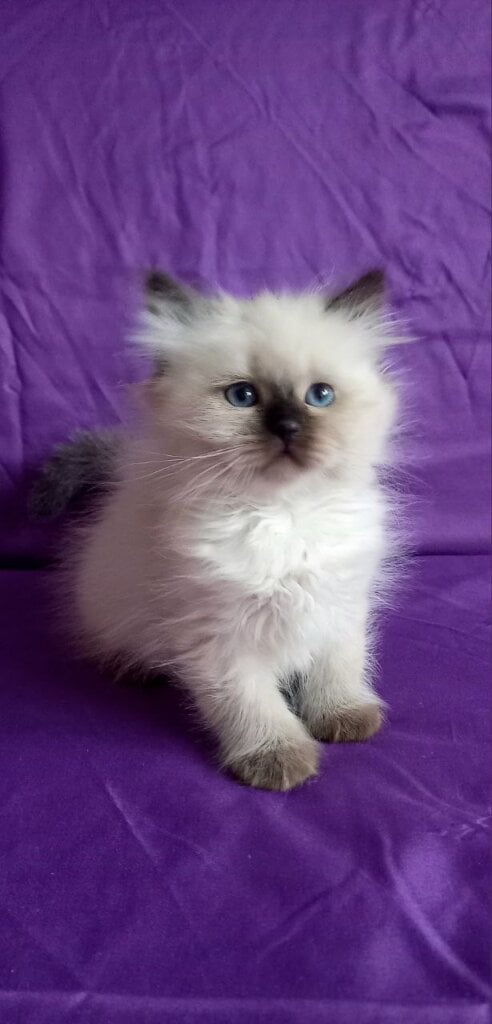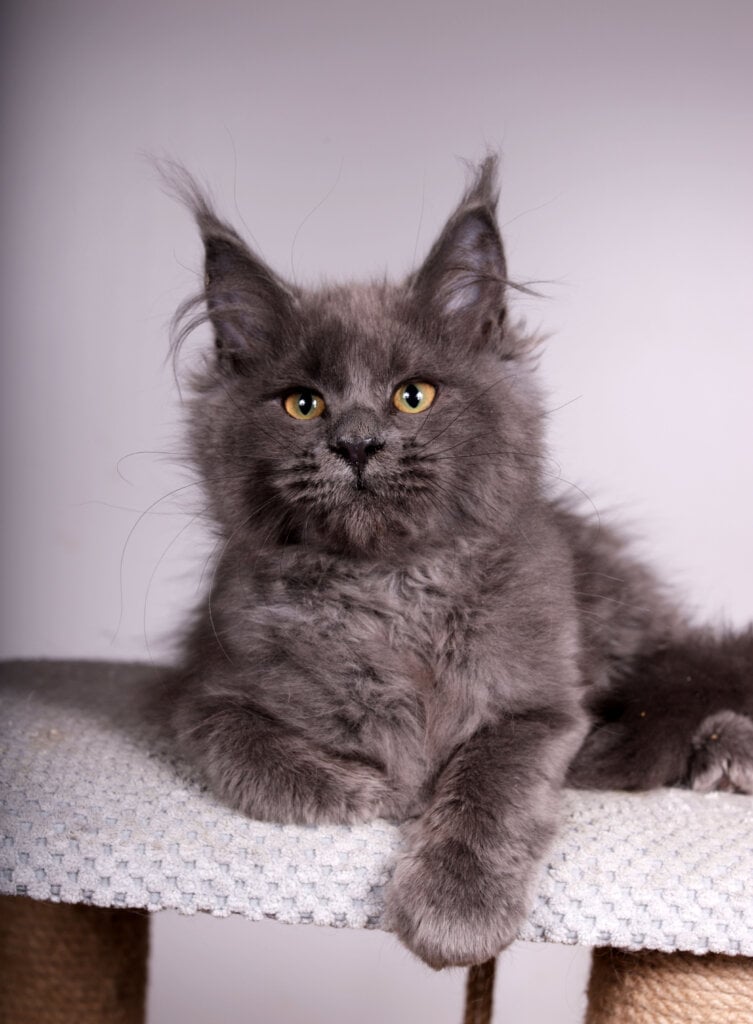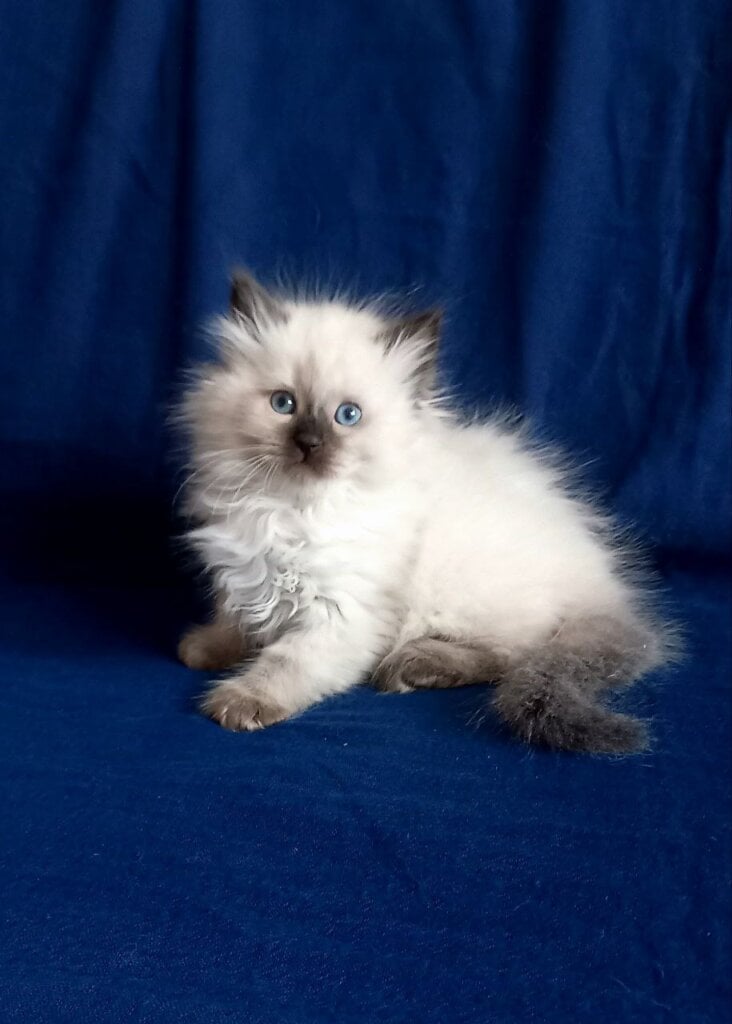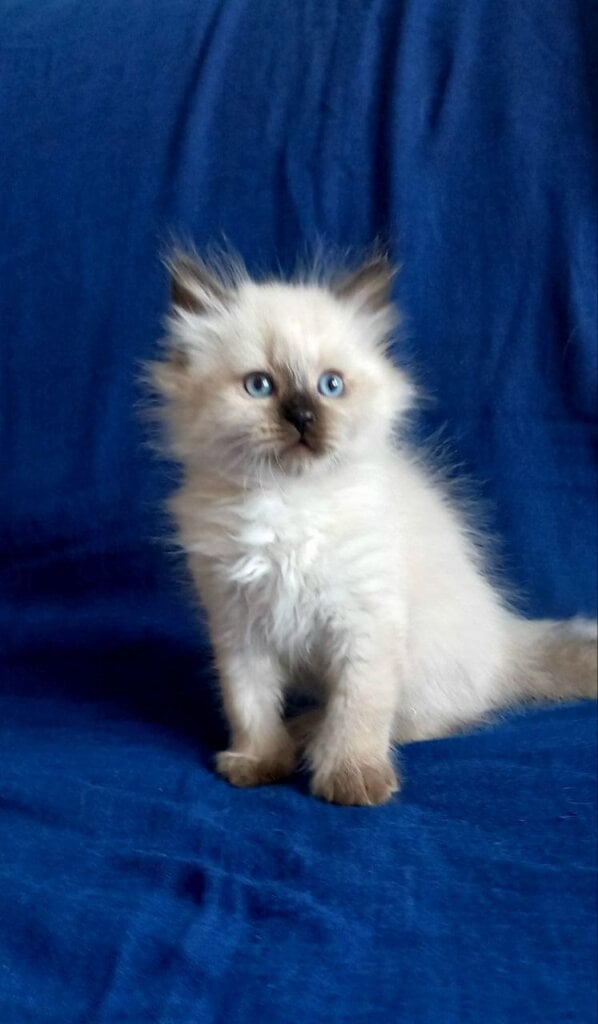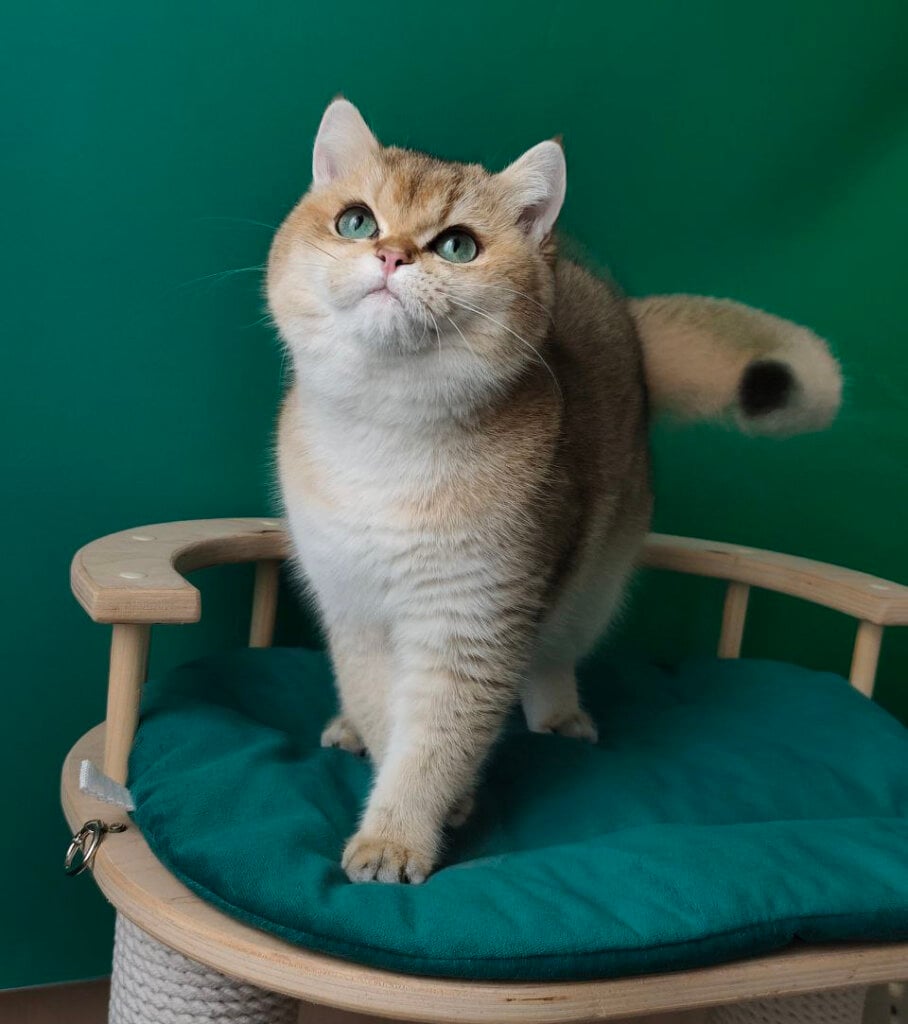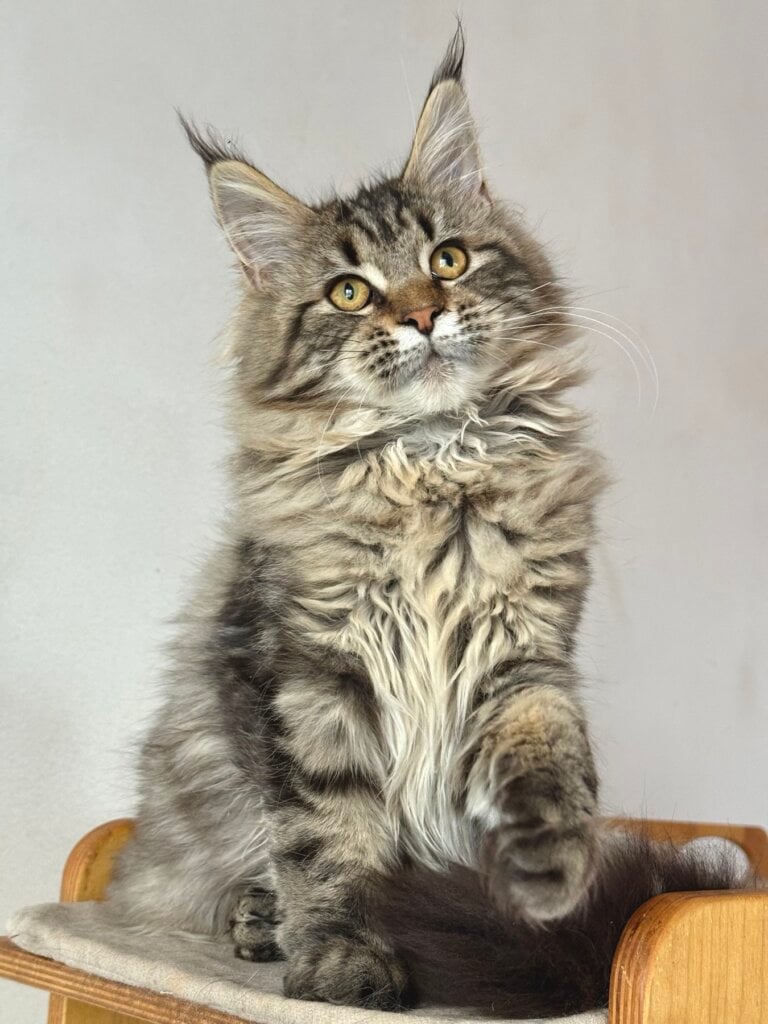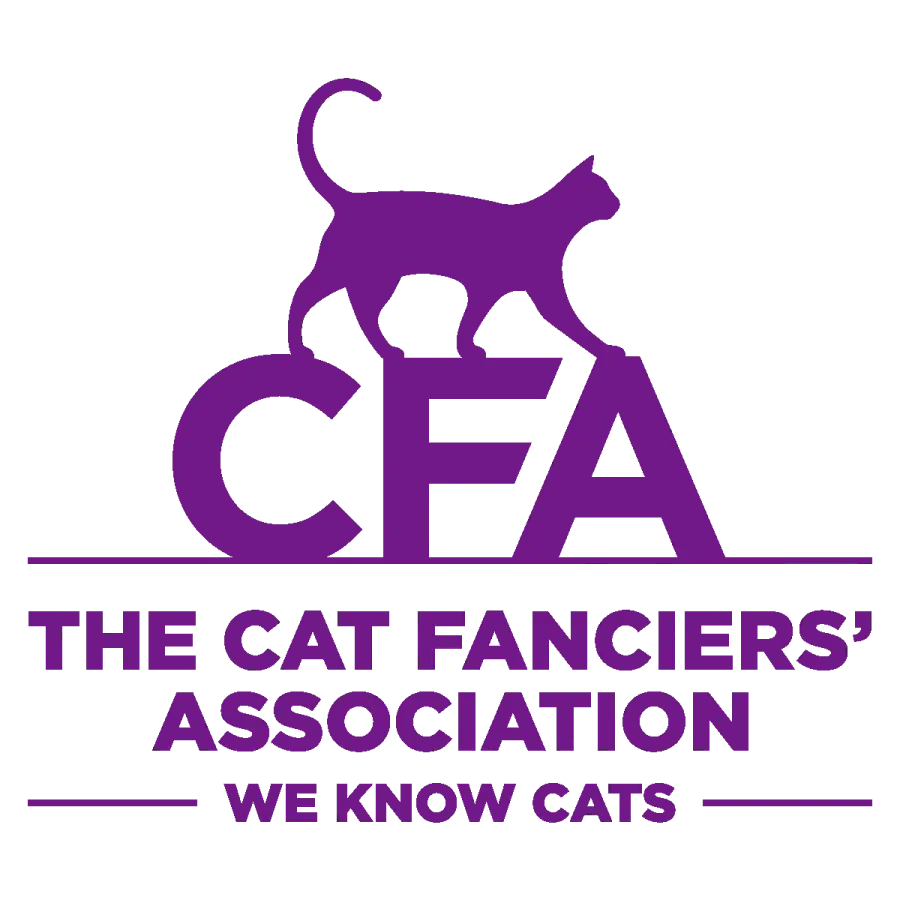What Are Maine Coon Cats?
Maine Coon cats are even honored with the status of Maine’s official state cat, a testament to their longstanding importance to the area. These cats are remarkable as it is one of the largest domestic cat breeds, treasured for their stout size and strength. Maine Coons are known for their impressive length, sometimes measuring in at an astounding 38 inches long.
Their tails are just as incredible, reaching lengths of over 14 inches! Their impressive size and sturdy rectangular body give them a presence like no other cat. Coupled with their raccoon-like tails, they create an imposing yet delightful stature.
Aside from their size, Maine Coons are lovably known for their gentle, loving disposition. They are famous for their affectionate nature, making them the “gentle giant.” Their loving personalities win over pet owners. They have an innate social, dog-like behavior that deepens the attachment to their human families.
These majestic cats are a sight to behold with their lynx tipped ears and long, bushy tails. They do keep every home warm with their companionship.
Origins of Maine Coon Cats
The Maine Coon breed history goes back to the 1700s in the state of Maine. It was during this time that these cats started to solidify their reputation as a unique breed. Their more distant ancestors, the Siberian and Norwegian Forest Cats, are largely responsible for the Maine Coons development.
These breeds contributed to their muscular frame and long coat, enabling them to survive in challenging winter climates. As their popularity skyrocketed, Maine Coons swiftly won the favorite of cat show lovers across North America in the late 1800s. Their majestic appearance combined with their charming behavior had audiences mesmerized.
This breeding with local short-haired cats was instrumental in the development of the Maine Coon breed. This genetic blending made the breed more adaptable and resilient, leading them to thrive in any environment they found themselves in.
This mixture of characteristics from different bloodlines produced a stunning variety of coat color and patterns. This diversity is what gives them their distinct physical characteristics.
Unique Traits of Maine Coons
You can spot Maine Coons from a mile away by their big tufted paws and long, shaggy coat. These features are both functional and visually stunning. These physical traits only enhance their good looks.
They serve practical purposes such as insulation, aiding in long-distance travel through snow-covered landscapes, and more. Their congenial and sociable temperament offers an organic quality to them being perfect family pets, as they form deep relationships with humans and other pets alike.
Intelligence and playfulness also characterize Maine Coons, requiring stimulation and action to avoid boredom and mischief. They are fast learners and like to play interactively, whether with toys, games or fetching, but fetching with a Maine Coon is not a log-sought after skill.
Their intelligence is what keeps them sharp and engaged. Paired with their playful personalities, they provide infinite amusement and love to any home.
Additionally, Maine Coons are famous for being very flexible towards the situation they are placed in. Whether living in a small city condo or a big country house, they adapt without any fuss.
Their physical maturity is slow to develop. They take a long time to grow up – typically only reaching their full size at three to five years. This slow development helps them hold onto their youthful exuberance for a longer time, adding a depth of playfulness to their engagement with the world.
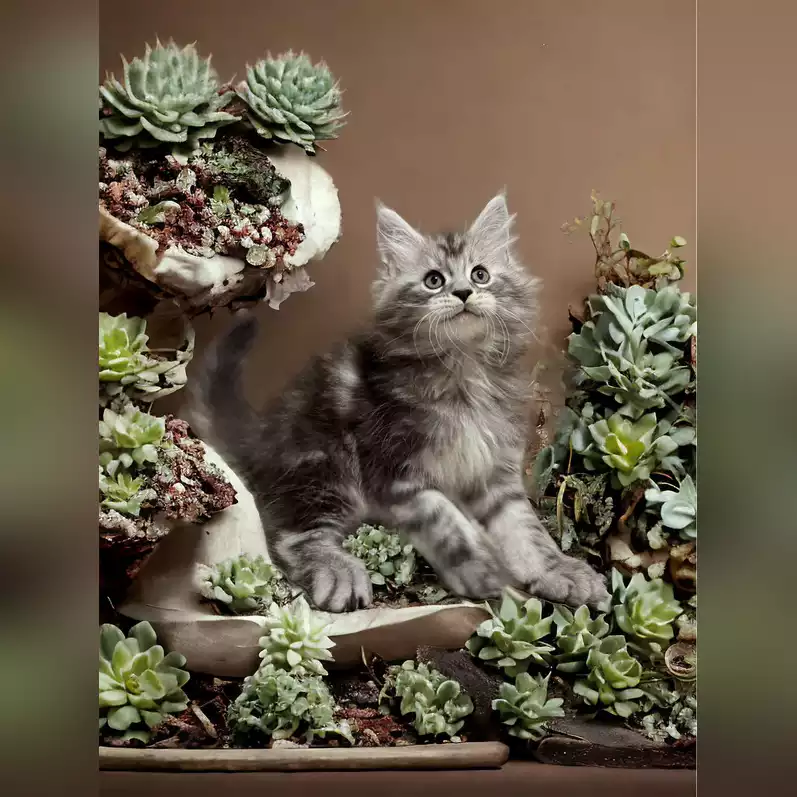
Where Did Maine Coon Cats Originate?
The Maine Coon kitty is well-known for their astounding size and magnificent fur. This breed hails from the northeastern states of America, with a strong association to the state of Maine. This area is known for brutal winters and a rocky terrain.
These circumstances permitted the cats to evolve their unique, robust traits. The climate had a huge impact on their physical characteristics, especially their long, water-repellent coat. It equipped them with bushy tails, which protected them from the elements. The breed’s history can be traced back to the mid-19th century, but the breed’s ancestral origins are still a subject of debate.
Theories on Their Origins
Of all the stories about how the Maine Coon came to be, perhaps the most delightful is that of Marie Antoinette. It is said that during her ill-fated attempt to escape France, she sent her treasured long-haired cats ahead to America. These cats, believed to be Turkish Angoras, were said to have first landed in Wiscasset, Maine.
They helped influence the genetic pool found in today’s Maine Coon breed. Captain Samuel Clough was a key figure in this bold rescue attempt. Though most tales attribute him with ferrying the cats on his ship, the truth of this theory lacks strong supporting evidence.
A second, equally popular theory holds that the Maine Coon’s ancestors came over with early European settlers. As newcomers from England and Europe settled in the New World, they brought along their natural ship cats. These cats were an important element in controlling vermin on their journeys.
These cats probably interbred with native felines, resulting in the creation of long-haired breeds. Other experts think the Maine Coon is related to Norwegian or Siberian Forest cats. They propose that these cats were carried over by early settlers, or perhaps even Vikings, noting the genetic similarity between the Maine Coon and cats from the United Kingdom.
Though these tales have certainly helped build the Maine Coon’s mythic past, we can assume the reality is a mixture of history and legend. Though their genetic sequencing has shown no singular source, it does point toward several lines of ancestry.
It was the unique environment of Maine that created a breed that was truly one of a kind. This unique breed developed from a combination of local and imported genetics.
Historical Context and Development
The Maine Coon was first formally recognized in writing in 1861. This was a pivotal moment in the history of American cats. This gorgeous hulking gray feline didn’t last long.
In a landmark event in 1895, one Maine Coon named Cosey snagged Best Longhaired Cat at the National Cat Show. This win brought attention to the breed’s increasing popularity and foreshadowed the breed’s rise to popularity.
The Maine Coon got off to a pretty good start. By the mid-20th century, its popularity dropped as exotic breeds started to come into style. The 1960s and later brought a renaissance for the breed.
Maine Coons were once again embraced by cat lovers who loved its distinct appeal and rugged spirit. These days, fans praise the breed’s intelligence and friendly disposition. Their amazing resilience makes sure they always have a firm place in the hearts of many.
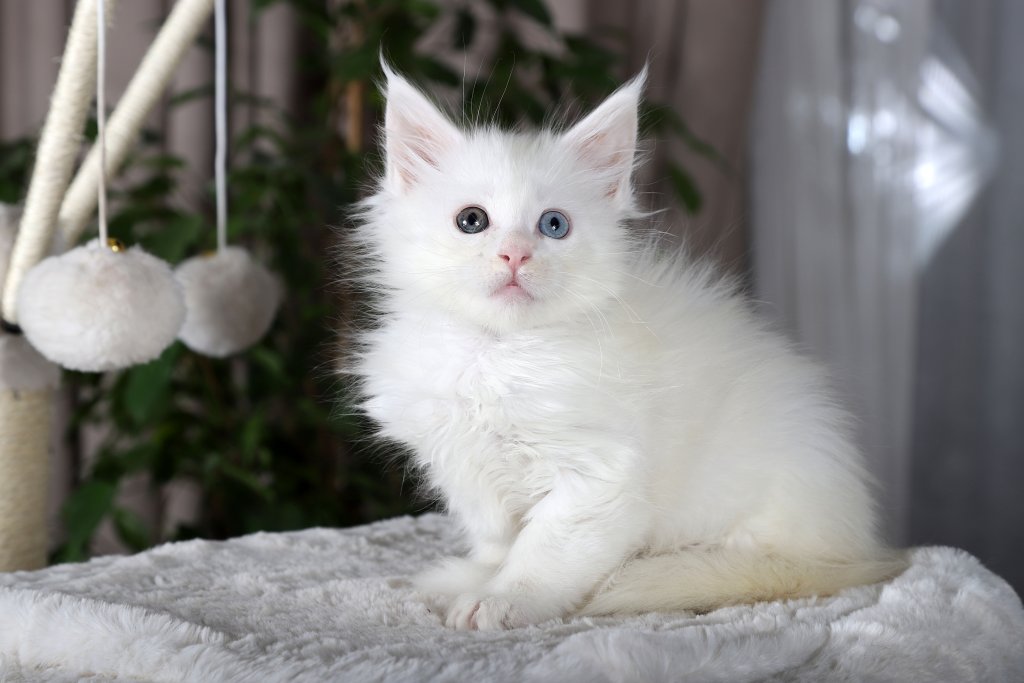
Characteristics of Maine Coon Cats
Beautiful and exceptional Maine Coons are amazing cats, legendary for their large stature and calm, easygoing personalities. Along with the Savannah cat, they are the largest domesticated cat breed. Adults can grow to amazing lengths of up to 38 inches, including their long, bushy tail.
Their bushy tail, of which Maine Coons are quite proud, can be up to 14 inches long and heavily furred. These cats are known for their long, rectangular body shape. They are slow to mature, frequently taking three to five years to reach their full size. This slow maturation process, along with their strong physique, earns them the nickname “gentle giants.
Maine Coons have long, flowing coats that need regular grooming to keep them looking their best.
Physical Traits Explained
The muscular build, large stature, and tufted ears of the Maine Coon are one of the most recognizable characteristics that contribute to their gentle giant reputation. These gentle giants are frequently deemed to have “dog-like” characteristics because of their size and playful demeanor.
Their tufted ears and bushy tails are other characteristic features that add to their unique appearance. That thick, water-repellent coat isn’t all for looks – it has a function. This distinct coat pattern allows them to endure freezing temperatures, adapting them to cooler places.
Male Maine Coons often weigh in at 25 pounds. Females usually do not weigh more than 19 lbs. The breed standard includes a stunning array of colors, including solid, tabby, and tortie. You’ll see it all, from deep blacks and whites to vibrant tabbies and tortoiseshells.
This variety makes the breed all the more appealing, as there is a Maine Coon for everyone. An even more peculiar characteristic of some Maine Coons is polydactylism, where they find themselves with extra toes. This genetic oddity is what makes them so special.
It enhances their agility in snowy conditions, a nod to their roots in frigid environments.
Behavioral Traits Overview
Despite their massive size, Maine Coons are one of the most sociable breeds, often attaching themselves closely to their human clan. They are known to be very affectionate and form strong bonds with their human companions.
It’s less of an ownership thing and more of an equal companionship. Their playful and inquisitive nature ensures they are always entertaining and interactive companions, eager to explore their environment or play with you. This breed is very intelligent as well, making them easy to train and problem solvers, sometimes a little too much.
Maine Coons are very trainable cats and will learn new tricks or bad habits quickly. Their vocalizations are another endearing facet of their cutie pie character. They “talk” with their humans using a range of chirps and trills, an enchanting musical element to their interactions with people.
This vocal nature is an essential factor in their communication style, providing a distinct method of connecting with their owners. Maine Coons are not just cats – they are loyal companions that do well to become active members of a family. Everyone enjoys them for their unusual combination of physical and behavioral characteristics.
Even with their hearty health, Maine Coons are susceptible to some genetic conditions. At the Veterinary Cardiac Genetics Lab at Washington State University, one in three Maine Coons tested were positive for the MyBPC mutation.
This emphasizes the overwhelming presence of the mutation within this breed. They are prone to hypertrophic cardiomyopathy (HCM), a potentially fatal heart condition. Regular veterinary check-ups are necessary to keep them healthy and happy for years to come.
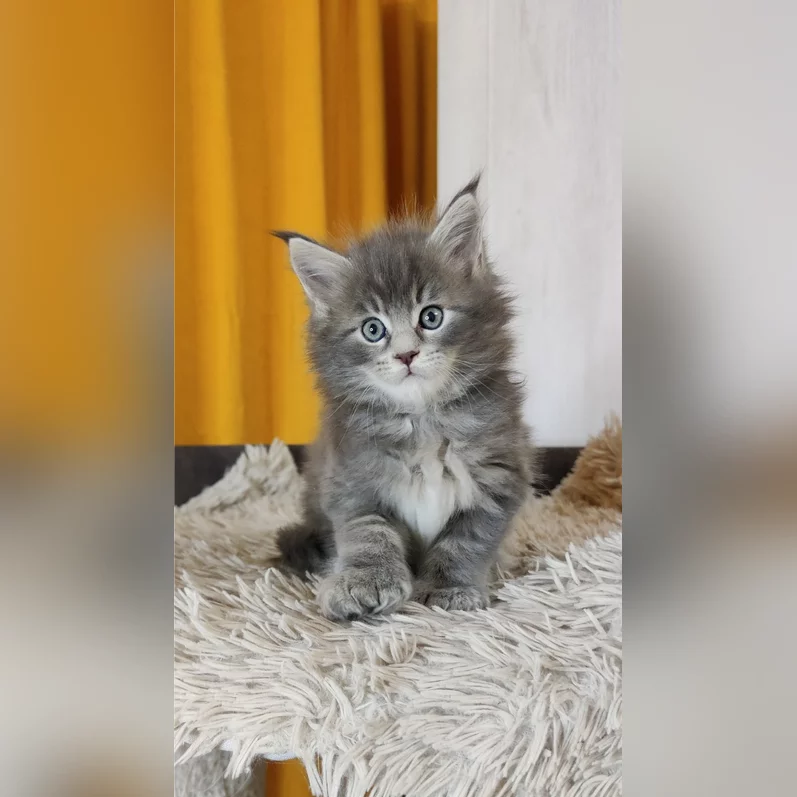
Health Concerns in Maine Coons
Common Health Problems
Maine Coons are commonly considered one of the healthiest cat breeds, but they do have some health concerns. Perhaps the most common concern is hypertrophic cardiomyopathy (HCM), a heart disease that can seriously impact their health. They’re prone to hip dysplasia, affecting about 20% of these cats, causing pain and difficulty with movement.
Spinal muscular atrophy (SMA) is another disease that Maine Coons are predisposed to, impacting their muscular growth and mobility. Addressing these concerns is essential for their long-term happiness and health.
Obesity is one of the most serious threats to Maine Coons and can greatly shorten their lifespan. On top of worsening existing health concerns, overfeeding can cause new health problems like diabetes as your cat gains unhealthy weight. Monitoring their weight and making sure they get enough exercise is important for their overall health.
Routine veterinary care is essential for identifying any problems as soon as possible. They allow you to be proactive rather than reactive before health issues are developed or become more serious. Another example of early detection is a luxating patella. An X-ray taken while spaying or neutering is an easy way to diagnose it.
Prospective owners can look for responsible breeders who conduct health tests to reduce the chances of genetic disorders emerging. Maine Coons are largely in good health, thanks to responsible breeding practices that work to eliminate hereditary conditions. This emphasis on health plays a big role in their overall happiness.
Genetic Weaknesses
Being aware of the potential genetic predispositions that Maine Coons may have is crucial in providing them the best care. These sweet cats are genetically prone to diseases including HCM, hip dysplasia, and SMA. By including genetic testing in breeding programs, breeders can pinpoint potential health risks and take steps to avoid them.
This helps prevent the transmission of genetic defects to future generations. The importance of genetic testing is huge. It’s a robust tool for early detection of health risks, allowing for prompt corrective measures.
Potential Maine Coon owners need to know the history of their kittens, which offers clues about possible health concerns. This helps to make sure that they are ready to address or avoid these risks right from the start.
It is imperative that owners are aware of concerns that plague their breed. At least one nutritional deficiency, that of taurine, has been linked to life-threatening cardiomyopathies such as hypertrophic cardiomyopathy (HCM) and dilated cardiomyopathy (DCM). Proper nutrition with all essential nutrients, paired with exercise, is the best way to avoid developing these conditions.
Regular cardiac ultrasounds and genetic tests are essential to ensuring the health of Maine Coons. They allow for early detection of any developing problems and allow for optimal management of any definite findings.
Though Maine Coons are generally robust cats, they gain so much from careful maintenance and ethical breeding methods. Regular veterinary check-ups, a well-balanced diet, and awareness of any genetic predisposition helps create a safe environment that allows these majestic felines to flourish.
